KEO News Wire
100 years on: Kolisi & Savea showcase rugby’s racial change
If you want to know just how much change there has been when it comes to race and rugby in 2021, go back to the Springboks tour of New Zealand in 1921 and their 9-8 win against the Maori, writes Mark Keohane.
There was a great moment on the eve of the Springboks and All Blacks Centenary Test in Australia a few months ago when Springboks captain Siya Kolisi and All Blacks captain Ardi Savea prepared for a photo shoot to promote the Rugby Championship.
Kolisi, in speaking to Savea, said how cool it was that after 100 years of rivalry between the game’s two greatest rugby-playing nations and combined winners of Six World Cups, two players of colour would be leading out the teams in the 100th showdown.
The 100th Test, scheduled for Dunedin in New Zealand because that is where the 1st was played, had to be moved to Australia because of Covid. But the showdown and the one that followed would be brutal contests with both sides winning one and the aggregate score being tied.
The respect between Kolisi and Savea was obvious and if you follow both on social media, they enjoy a friendship that extends their international on-field rivalry.
Kolisi, of Xhosa heritage, leading the Springboks, and Savea, of Samoan heritage leading the All Blacks. The game of rugby in both countries had advanced, but it’s been one hell of a battle to get it to this point.
And for that alone, 2021 is a celebration, in that we are finally there because 100 years ago, what was there was as ugly as it should have been unacceptable.
Mike Munro is the author of ‘1921 Rugby, Race & Empire’ and it details the first Springboks tour of New Zealand in 1921 and the headline that screamed at me was ‘the most unfortunate match ever played: when the Maori played the Springboks a century ago’.
For the record, the Springboks, in their 17th match on tour, beat the Maori 9-8.
It isn’t the match detail, but the dynamics around the match that made for such powerfully numbing reading, especially the parts that spoke of South African disgust because the Pakeha (white) section of the home crowd cheered the Maori as the home team.
Munro writes that some Springboks turned their backs on the Maori poi performance, which angered the Maori players, some of whom were quoted as saying that it was more than a rugby match and that they were ‘playing for their race’.
The fractured nature of the occasion and the racial tension is emphasised by the prejudice and racist match report written by the South African journalist Charles Blackett, who was travelling with the Springboks.
Blackett, described as a pipe-smoking rugby correspondent. Wrote: Most unfortunate match ever played. Only a result of great pressure being brought to bear on (Springboks manager) Bennett induced them to meet Māoris. Bad enough having to play team officially designated New Zealand natives, but spectacle of thousands of Europeans frantically cheering on band of coloured men to defeat members of own race was too much for Springboks, who were frankly disgusted.’
The newspaper report was greeted with shock in New Zealand and while the Springboks distanced themselves from Blackett, they could not escape the glare of New Zealanders, especially the Arawa iwi of Rotorua, who had hosted the Springboks at the Ohinemutu marae three weeks before the Maori match.
Kiwi Amohau had sent a letter to the Springboks management to say that ‘to accept their (Arawa) welcome and break bread with our people, and then later insult them as you have done was not what Māori understood to be the manner of honourable gentlemen’.
Munro writes that on the last day of the 1921 tour, a senior minister and future prime minister, in farewelling the Springboks, stated that New Zealand was proud of the Māori people and that ‘Māori and Pākeha are one in New Zealand.’ He expressed the hope that the visitors ‘now understand that.’
That was in 1921.
One hundred years later, it is a whole lot different and while we bemoan the pedestrian pace of change, at least there is evidence that there has been change.
KEO News Wire
In-form Springboks trio star in the Investec Champions Cup
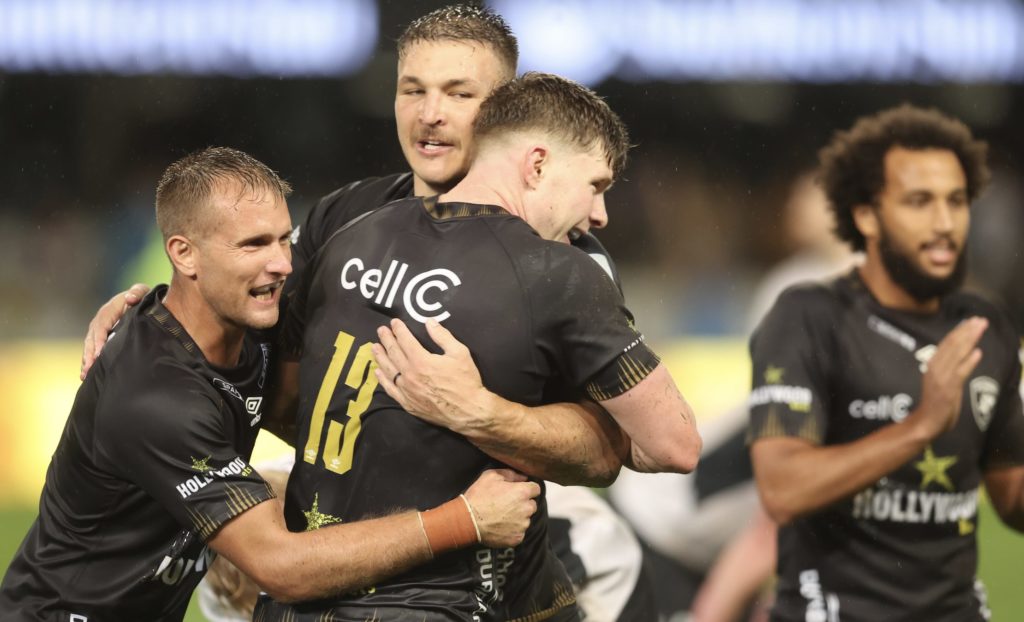
The in-form Springboks trio wearing numbers 9, 10 and 12 of November continued their hot form in Round 2 of the Investec Champions Cup.
Sacha Feinberg-Mngomezulu (Stormers), Andre Esterhuizen (Sharks) and Cobus Reinach (Stormers) were South Africa’s biggest individual contributors. Their match statistics reinforced their contributions.
Bulls No 8 Elrigh Louw, in his comeback month, was comfortably his team’s best performer.
Feinberg-Mngomezulu’s individual statistics against La Rochelle read like a distinction list, with Paul de Villiers and Cobus Reinach producing massive individual returns in the 42-21 Investec Champions Cup win against La Rochelle.
Feinberg-Mngomezulu made the most metres (90), beat the most defenders (7), made the most kicks in play (11) and carried the ball the most (13). Player of the Match De Villiers, who won vital turnovers on his team’s own try line, made the most tackles (16), beat four defenders, the second most among the Stormers, alongside scrum half Cobus Reinach, and made the fifth most running metres (47). He also was made the third most carries (9), one behind second placed Reinach.
The impact of Springboks Reinach and Feinberg-Mngomezulu is emphasised by their individual contributions and collective as a halfback pairing. The duo featured as the biggest contributors in every one of the four primary attacking categories.
De Villiers’s all-round impact, on attack, defensively and at the breakdown speaks to his Investec Player of the Match Award.
SUPER SATURDAY FOR STORMERS AND SHARKS
Sharks inside centre captain Andre Esterhuizen, in his 100th match for the Sharks, made the most tackles for his team (14), the most carries (11), beat the most defenders (5) and made the second most metres (29). His fellow Springboks midfielder beat four defenders, which was the second most for the Sharks.
EVERY PLAYER STATISTIC AND TEAM STATISTIC FROM ROUND 2s 12 MATCHES
Springbok loose-forward Elrigh Louw, in his first start of the season after a lengthy lay-off because of a serious leg injury, was the top performer for the embattled Bulls against the Northampton Saints. The Bulls lost 50-5 but Louw was the the only bright light on a dark night.
Louw, who started at No 8, played for 58 minutes in his third comeback match. He made the most carry metres, 41, the second most tackles (13), which was one less than Marcell Coetzee and he won the most turnovers for the Bulls (2).
KEO News Wire
Elrigh Louw brings light to another dark day for belittled Bulls

Springbok Elrigh Louw was the light for the Bulls on what was another dark day in the 2025/26 season, writes Mark Keohane.
The Bulls were belittled, more than beaten, by the Northampton Saints on Sunday in the Investec Champions Cup, and what made the afternoon that much more embarrassing for the South Africans is that the Saints were not at their best for the first 50 minutes.
Louw, who played more minutes against the Saints than he has since coming back for a serious injury and nearly a year out of the sport, is growing in confidence and strength. The Springboks No 8 is a class act and he was the one player who looked like an international in a Bulls match 23 that played with little intensity and even less regard for the preciousness of holding onto the ball.
Louw, who started at No 8, played for 58 minutes in his third comeback match. He made the most carry metres, 41, the second most tackles (13), which was one less than Marcell Coetzee and he won the most turnovers for the Bulls (2).
Unfortunately, on this particular afternoon Kade Wolhuter produced probably his worst match of a young professional career. Wolhuter, 24, was a schoolboy star for Paul Roos, Western Province and South Africa’s Youth Teams, but he has battled to transition to professional rugby, having moved from Western Province and the Stormers to the Lions and now the Bulls.
He missed his only two kicks at posts and, as a team and coach killer, he missed three penalty kicks to the touchline. All of these misses were punished by the Saints on the counter-attack. His skill set deserted him with each passing minute and his chip kicks were poor, his passes were ineffective or intercepted and the worse it got, the further back in the pocket he stood.
Springboks two-times World Cup winner and flyhalf Handre Pollard’s presence would have made a difference to the performance but it would not have changed the result.
The Bulls have problems, are devoid of confidence, seem confused as to how to play and most certainly are not showing the desire to prove to new coach Johann Ackerman that the squad should remain the same next season.
Their Investec Champions Cup campaign is over before 2026 has started, having lost both matches in December and conceded 96 points in the process. Their URC campaign is not looking healthy, with three wins in six starts.
The Saints, winners at Pau, are well positioned going into the new year, and they will back themselves to host a home last 16 play-off match.
The Investec Champions Cup, in the play-offs is a representation of the toughest club competition in the world, but the league stages need a revisit, as does the schedule, because too many teams are sending lambs to the slaughter in away games, and then backing big home wins to make the play-offs.
There are six clubs, at best, with proper depth to compete in their domestic competition in parallel to the Investec Champions Cup, and even a club like Saracens found out that to win in South Africa, like in France, you have to send your best squad. They will be hurt by the defeat to the Sharks in Durban.
The Bulls, somehow, trailed 7-5 after 35 minutes and had so many opportunities to be ahead and to put doubt into the home team players and supporters, but the ill-discipline and lack of defensive structure, intensity or mongrel, resulted in a 50-5 defeat.
It got messy in the end and it is going to continue to get messy for the Bulls if they fail to address the fact that they have a serious defensive problem.
READ ALL THE LATEST FROM THE INVESTEC CHAMPIONS CUP
KEO News Wire
SA’s Super Saturday as Stormers & Sharks win big

The Investec Champions Cup play-off ambition lives strong for the Stormers and Sharks after contrasting, but equally decisive wins on Saturday, writes Mark Keohane.
The Stormers and Sharks both made a statement to teams from up north. Bring your best squads to the Republic to beat South Africa’s elite. Defending champions Bordeaux recognised this a week ago when they went to Pretoria and downed the Bulls. They picked their strongest available match 23, including 16 internationals.
A lessor squad would not have come back from 33-22 at halftime but the world class squad of Bordeaux won comfortably 46-33.
La Rochelle, a two-time title winner, played kids against the Stormers and got done with more ease than the scoreboard suggests.
The Stormers scored six tries to three and had two disallowed in the first 15 minutes. They could – and should – have been 24-0 up before the 15th minute. They played with pace and width and Sacha Feinberg-Mngomezulu’s line kicking was a lesson in accuracy and control.
Inside of him, Springboks scrum half Cobus Reinach played as if he had spent the past decade at the Stormers. Reinach, on signing for the Stormers from Montpellier, made it clear he was not moving to the Stormers to wind down his career. He was moving to win matches and titles.
The Stormers won 42-21 and felt they should have done better. Their coaches lamented periods of the game, in which they lost shape, structure and the ball.
But they scored at will, when they needed to, and defended with purpose when it was demanded to keep out the youthful La Rochelle set-up.
Flanker Paul de Villiers were brutal over the ball, winning crucial turnovers and the Stormers pack, as a collective, never seemed troubled. De Villiers was named Investec Player of the Match, and Feinberg-Mngomezulu and Reinach were as imposing in their individual brilliance and clutch moments.
La Rochelle’s coaching team spoke of the gains from a young squad, how they felt they matched the Stormers for physicality but were undone by the initial pace at which the Stormers played.
The Stormers captain Salmaan Moerat, when told of this, said it had been noted, especially the view that they had expected more physicality from the Stormers.
The Stormers are two from two in the Investec Champions Cup, with an away win at Bayonne in France a week ago, and now this win at the Nelson Mandela Bay Stadium.
They are also six from six in the Vodacom United Rugby Championship, having not played at their home base in Cape Town since the league’s opening two matches in the last week week of September and first week in October.
They’ve done the next six on the road, in five different countries, with and without their current Springboks.
They play the Lions in the URC on Saturday in Cape Town, but for now the relief was the opening fortnight of the Investec Champions Cup had been safely negotiated and the Stormers sit atop of their Pool, edging Leinster on points difference.
WATCH: STORMERS WIN FOR 8th SUCCESSIVE TIME IN ALL COMPETITIONS
KEO & ZELS CALLED THE STORMERS AND SHARKS INVESTEC CHAMPIONS CUP WINS
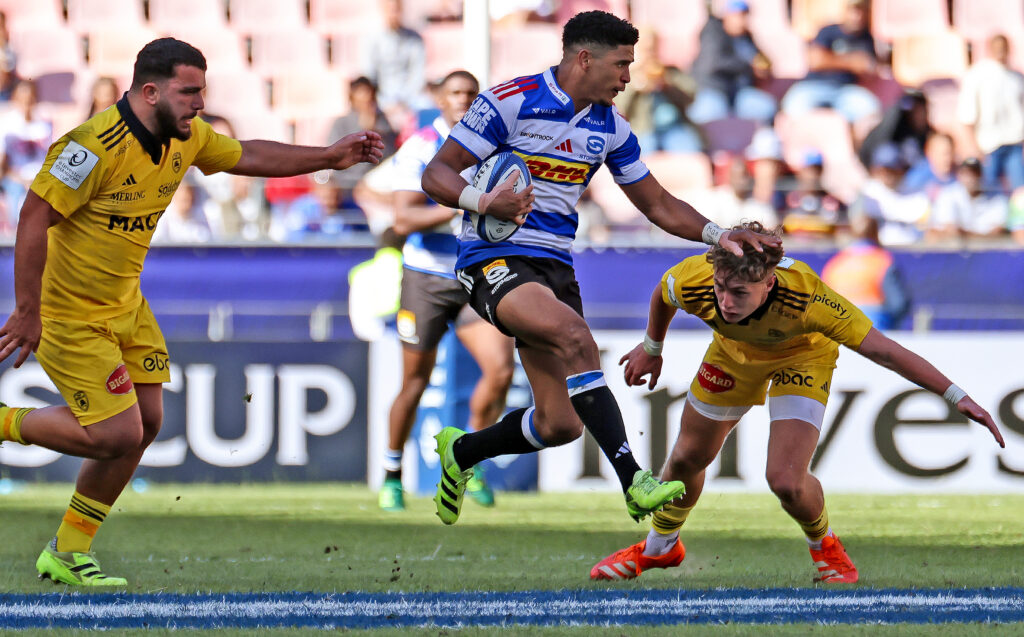
INPHO/Steve Haag Sports
JP Pietersen’s tenure as Sharks coach got reward as the hosts beat Saracens 28-23 in Durban.
The weather conditions were tough, the match was tough, and not easy on the eye, but the Sharks played with desire to get a result after a woeful start to the competition and an equally poor start to the URC.
Saracens rested some of their biggest names in Owen Farrell, Jamie George and Maro Entoje, and the Sharks were the beneficiaries of this marvellous England trio not being in the match 23.
Andre Esterhuizen, at inside centre, played his 100th match for the Sharks and led the team as captain.
Springboks captain Siya Kolisi started and emptied the tank in his 51 minute performance. Kolisi scored the opening try in a match that could have gone either way. Saracens had a chance to draw/win the match with the last play in injury time, but they knocked on a metre from the Sharks try line and the victory belonged to the Sharks.
*In the EPCR Challenge Cup, RedBull Newcastle scored in the 78th minute to beat South Africa’s Lions 14-10 and Stade Francis beat the Cheetahs 45-22 in Amsterdam.
For all the latest on the SA challenge in the Investec Champions Cup, visit SARugbymag
KEO News Wire
SA stars crack Investec Champions Cup Team of the Week
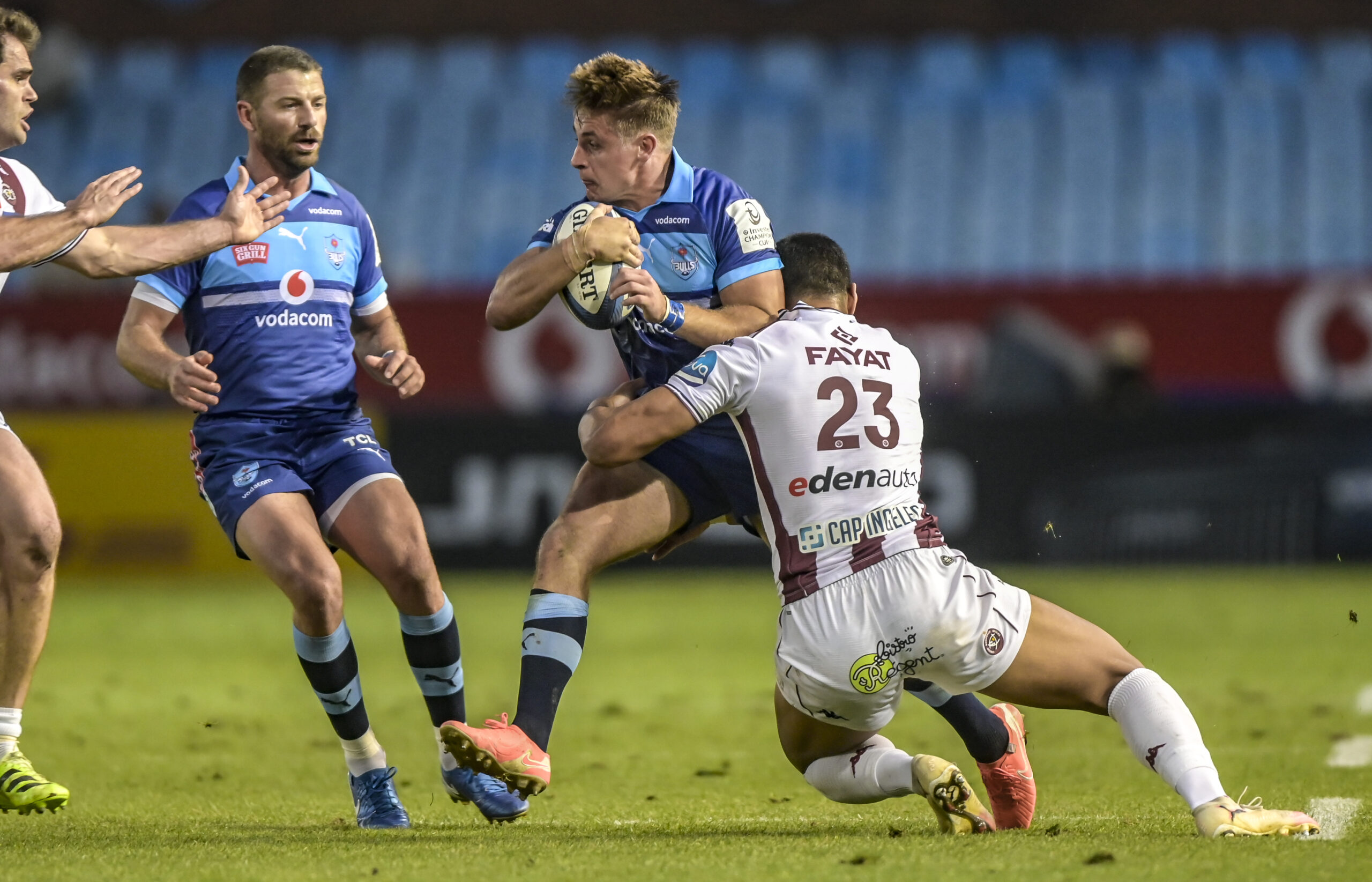
Three players from South African franchises have been included in the Investec Champions Cup Team of the Week following standout performances in Round 1.
Stormers front-rower Ntuthuko Mchunu was rewarded for a powerful display at loosehead, while his teammate Ben-Jason Dixon earned selection at flank after a high work-rate showing against Bayonne.
Sebastian de Klerk, the Vodacom Bulls speedster, claimed the left wing jersey after crossing the tryline in the Bulls’ thrilling clash with Bordeaux.
Also featuring in the XV is Kyle Steyn, the Glasgow Warriors captain, who qualifies via his South African roots and filled the right wing spot after a strong outing against Sale Sharks.
Selections were based on performance data from Oval Insights.
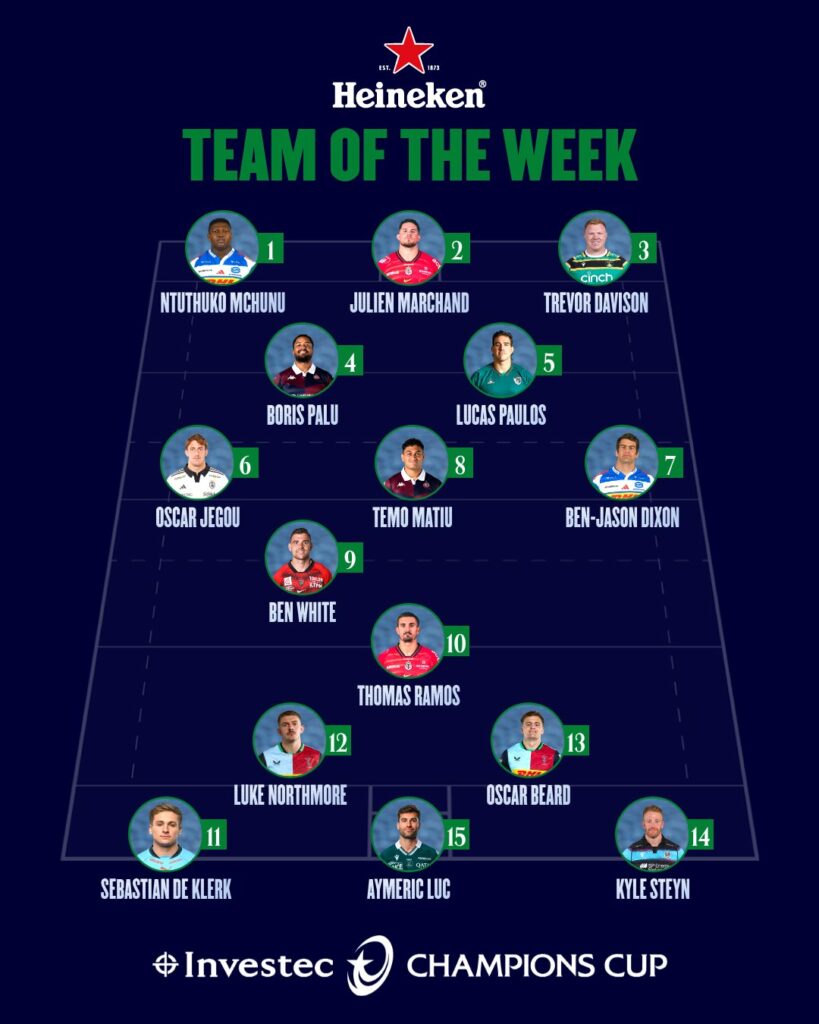
Keo selected his SA Team of the Week, that consist of 8 Stormers and 7 Bulls players. Sadly, no Sharks player made the cut.
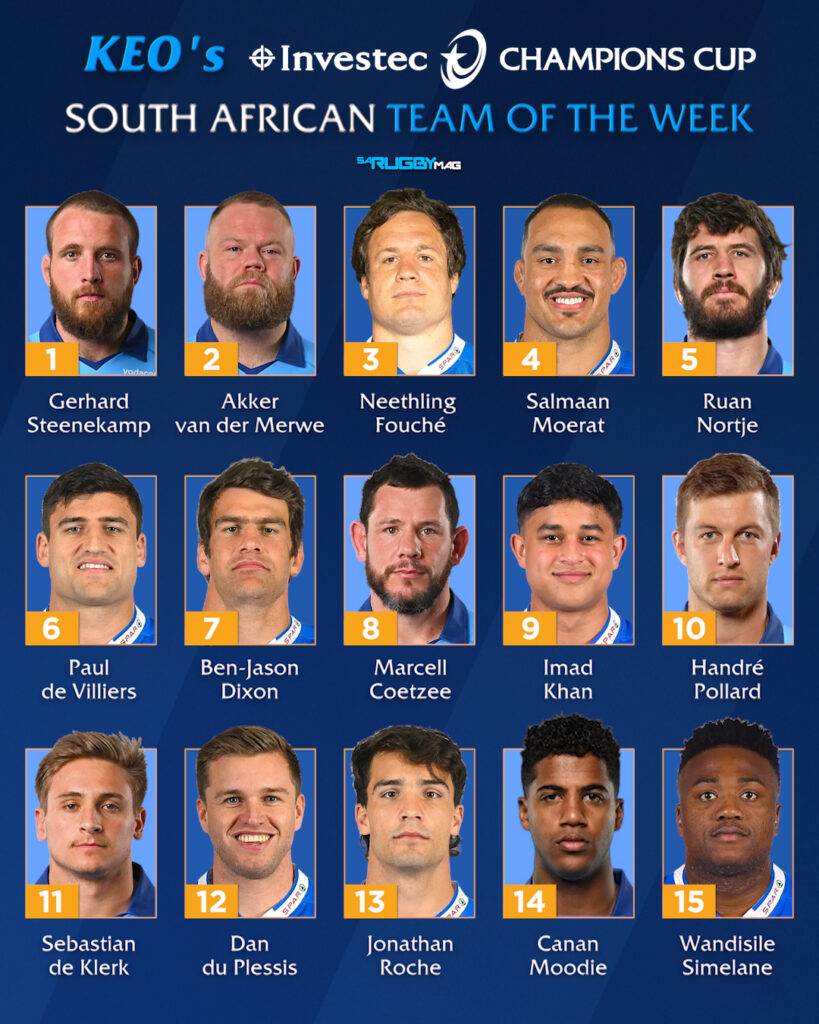
KEO News Wire
Investec Champions Cup running red hot in Round 2
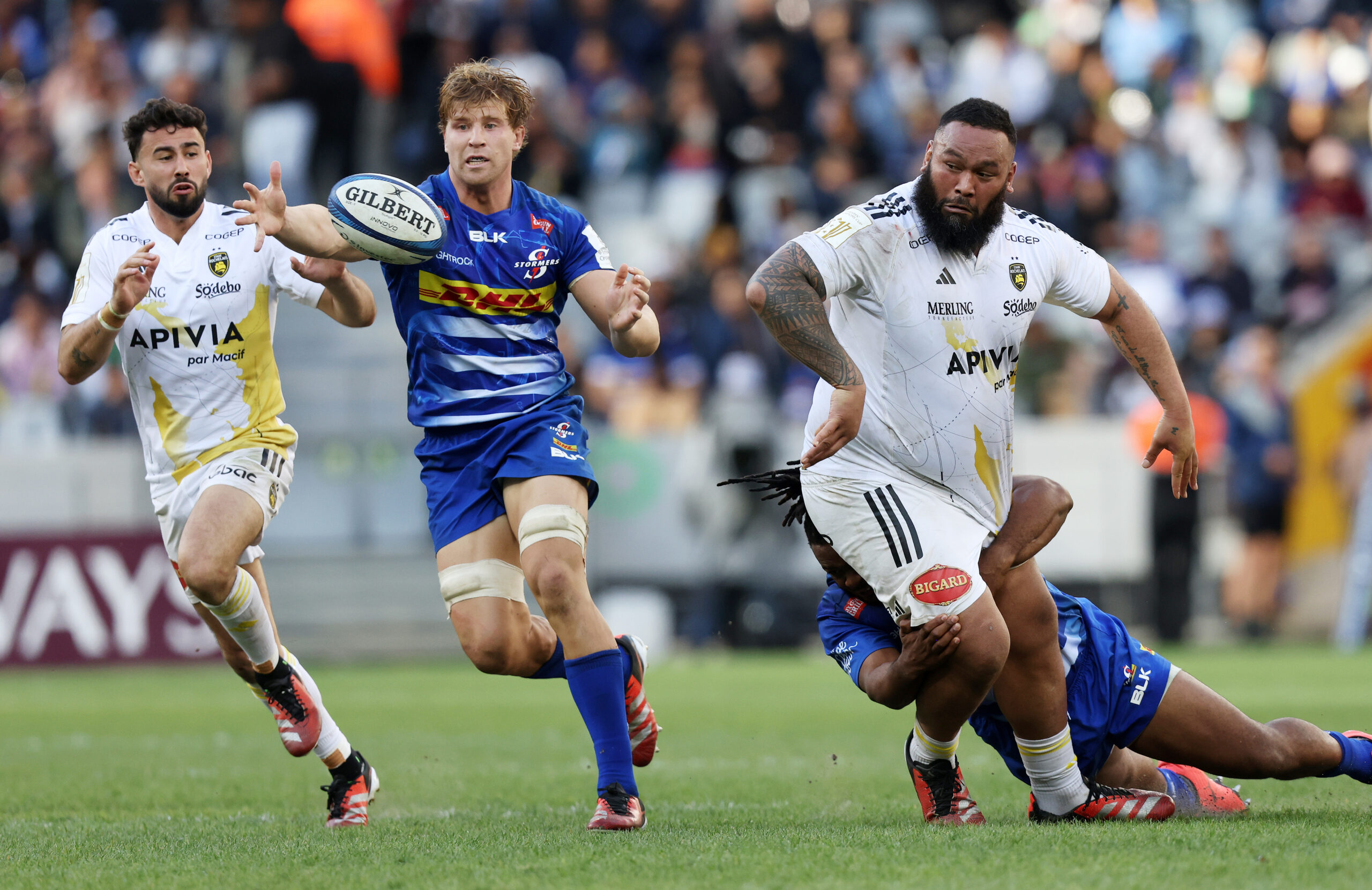
The Stormers and La Rochelle will be the weekend’s headline act in South Africa in Round 2 of the Investec Champions Cup.
English giants Saracens travel to Durban to play the Sharks and the Bulls are away to last season’s beaten finalists, Northampton Saints.
Home wins are non-negotiable for potential title winners and while the Stormers won’t exactly be playing at home in Cape Town, they will be in South Africa for their showdown with French club La Rochelle.
The Stormers won’t play in Cape Town because the stadium is unavailable this weekend, but they will play Leicester’s Tigers at the DHL Stadium in Cape Town in their final Pool match mid-January, 2026.
Stormers vs La Rochelle
Nelson Mandela Bay Stadium
Fresh from an impressive away win over Bayonne, the Stormers return to home soil to face a powerful Rochelle outfit. Flyhalf Clinton Swart led all point-scorers in Round 1 with 16, and the Cape side were excellent at the breakdown, winning more turnovers than any other team (10). Swart also leads the tournament in kick metres with 415.
La Rochelle were equally dominant in their opener, scoring six tries and controlling the maul. Hooker Tolu Latu hit 13/13 lineouts, while Oscar Jegou crossed twice. This is a clash of breakdown steel versus French physicality .
Expect plenty of changes to the match 23s that featured in last weekend’s opening round, where the Stormers and La Rochelle both won.
ROUND 1’s BIG GUNS FIRED BIG SHOTS
Sharks vs Saracens
Hollywoodbets Kings Park
The Sharks will be desperate to respond after leaking eight tries to Toulouse. Despite the loss, they topped the round for offloads (18) and dominant carry contacts (32), with Batho Hlekani and Le-Roux Malan both physical threats. They’ll need to tighten up defensively against a clinical Saracens side who beat Clermont 47–10.
Teenage wing sensation Noah Caluori was sharp in Round 1 with 116 metres gained and seven defenders beaten, while Nick Tompkins delivered five offloads in a typically slick Saracens performance .
Bulls vs Northampton Saints
Franklin’s Gardens
The Bulls showed attacking promise in a five-try effort against Bordeaux but ultimately fell short at home. Defence will be key against a Saints team that won their opener and brings a sharp mix of pace and structure. The Bulls will need more discipline and accuracy to make an impact in Pool 4.
Ernst van Rhyn (Sale Sharks) vs Clermont
Ernst van Rhyn delivered a defensive masterclass in Round 1, making a tournament-high 31 tackles for Sale in their narrow loss to Glasgow. He’ll be key again as the English club faces a Clermont side reeling from a heavy defeat to Saracens .
AFRICA PICKS: WHO CASHED IN ON THE OPENING WEEKEND
Also in Round 2
-
Leicester vs Leicester – Jordan Larmour (171m, 7 defenders beaten) leads a Leinster side that looked sharp in attack.
-
Toulouse vs Glasgow – The French giants ran in eight tries last week. Ange Capuozzo scored a hat-trick.
-
Munster vs Gloucester – Both sides are chasing consistency after mixed Round 1 showings.
KEO News Wire
It’s win or bust for Lions & Cheetahs in the EPCR
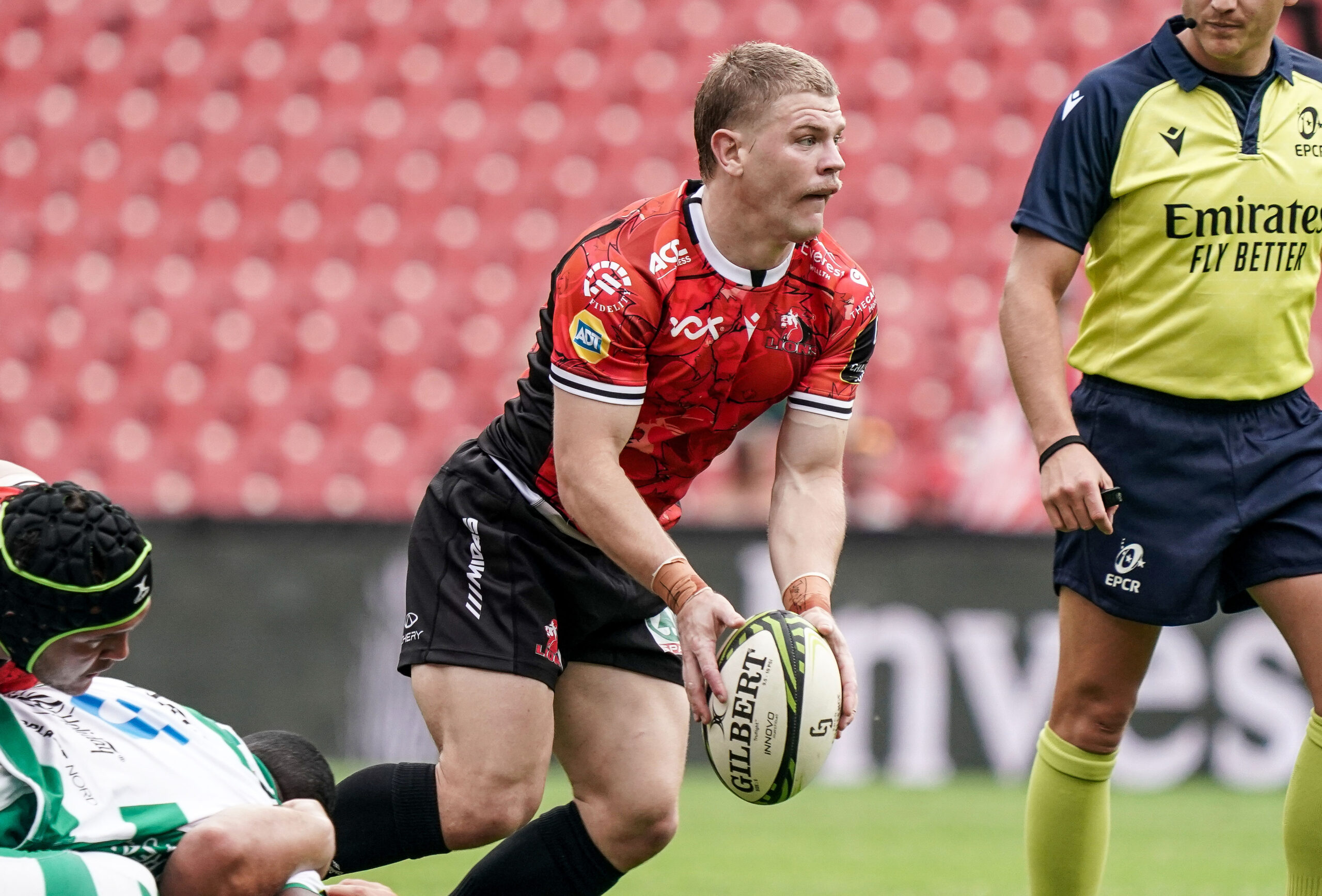
The Lions and Cheetahs must win in Round 2 of the EPCR Challenge Cup if they are to have any play-off aspirations. Both South African teams lost their opening round matches.
Lions vs Newcastle Red Bulls
Kingston Park
The Lions led 18-11 against Benetton in Johannesburg with nine minutes to play and lost 26-18.
Their attacking stats were among the best, leading the tournament in offloads (20) and kick metres (991). Ruan Venter was a standout with seven dominant carry contacts, while Erich Cronje and Quan Horn created problems with ball in hand.
Newcastle showed set-piece control and strong kicking structure in their opening win, away from home, in Lyon, with George McGuigan commanding the lineouts and Amanaki Mafi making 20 carries .
Cheetahs vs Stade Français
NRCA Stadium
The Cheetahs struggled against Exeter, conceding six tries, but there were positives. Michael Annies made 107 running metres and beat six defenders, while flanker Gideon van der Merwe led the competition round with five turnovers. They’ll face a Stade Français side that fired six tries past Cardiff and looked sharp across the park.
Lester Etien and Louis Foursans-Bourdette led the Parisians’ attack, combining for big metres, try assists, and line breaks .
The Cheetahs play their home matches out of the Netherlands and are based in Amsterdam for the EPCR.
Also in Round 2
-
Ulster vs Cardiff – Ulster’s nine-try demolition of Racing 92 puts them top of Pool 3.
-
Benetton vs USAP – Two strong starters go head-to-head after confident Round 1 wins.
-
Montpellier vs Zebre – Montpellier led in post-contact metres, while Zebre were clinical in defence and goal-kicking.
-
Ospreys vs Montauban – Ospreys boast the tournament’s best tackle success rate and strong breakdown control.
KEO News Wire
South African stars shine bright in Champions Cup opener
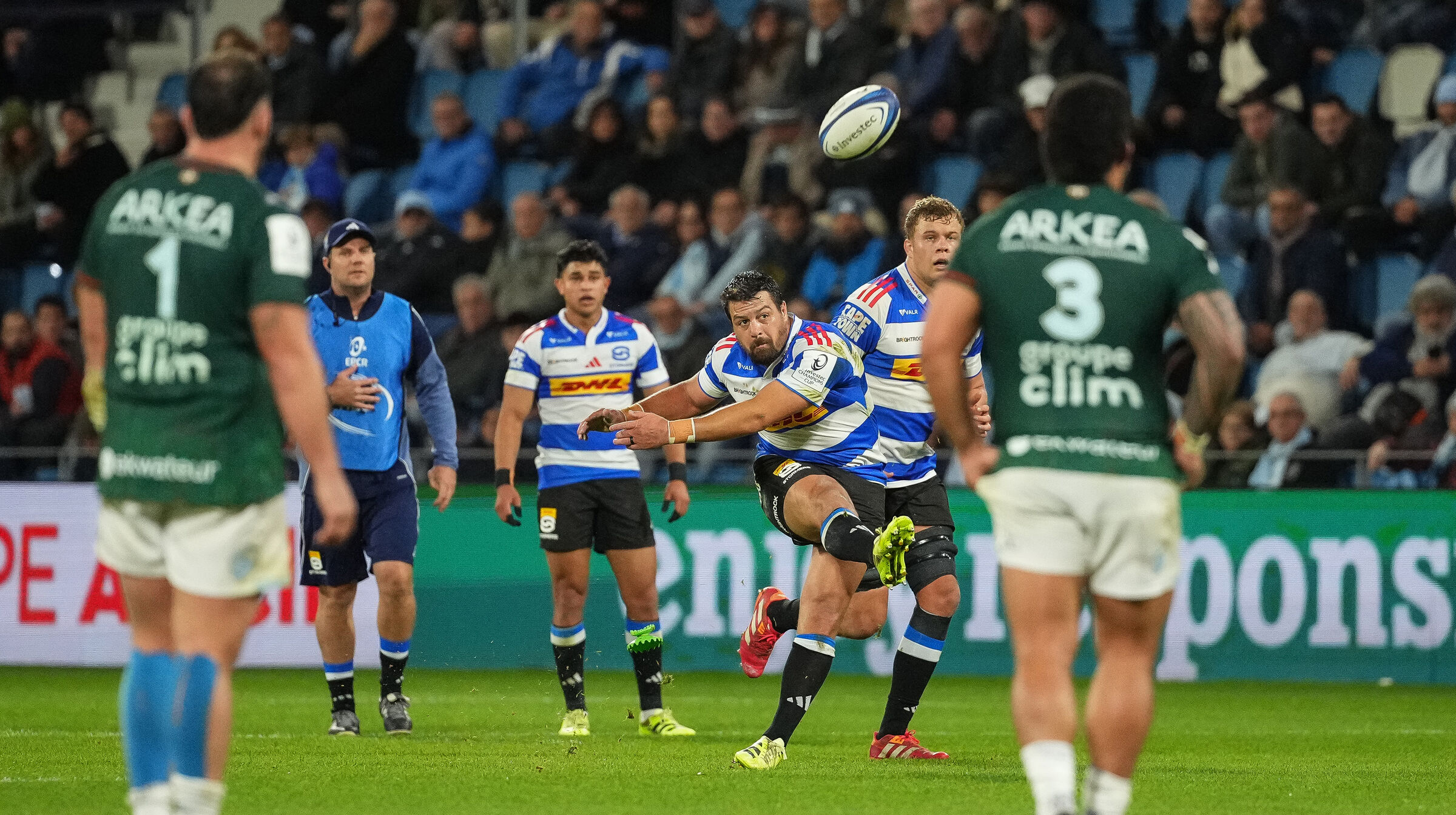
South African players made a major impact in the opening round of the Investec Champions Cup, with Clinton Swart and Ernst van Rhyn delivering standout performances despite mixed results for their teams.
Swart Steers Stormers to Victory
On loan from the Pumas, Clinton Swart made an immediate impression on debut for the Stormers. The flyhalf was instrumental in their 26-17 away win over Bayonne, contributing 16 points through four penalties and two conversions. Swart finished the weekend as the tournament’s top point-scorer, leading the charts across all 12 matches.
Van Rhyn’s Defensive Heroics
Former Stormers lock and current Sale Sharks flank Ernst van Rhyn put in a massive shift on defence, making a tournament-high 31 tackles during his side’s narrow 26-21 defeat to Glasgow Warriors in Manchester. His relentless work rate was a bright spot in an otherwise frustrating result for the English side.
Mixed Weekend for SA Teams
While the Stormers secured a gritty win, other South African franchises struggled. The Sharks were outclassed by Toulouse, who ran in eight tries in a dominant performance. Meanwhile, the Bulls fell just short against defending champions Bordeaux, who overturned a 10-point halftime deficit to earn a rare away win at Loftus Versfeld.
Bath, Bordeaux and Stormers fire big shots in Investec Champions Cup
Top South African Performers – Round 1
-
Points Leader: Clinton Swart (Stormers) – 16
-
Tackles Leader: Ernst van Rhyn (Sale Sharks) – 31
Round 1 Standouts (All Teams)
-
Carries: Grégory Alldritt (La Rochelle) – 20
-
Metres Gained: Josh McKay (Glasgow) – 121
-
Defenders Beaten: Jordan Larmour (Leinster) – 7
-
Offloads: Gavin Coombes (Munster) – 5
-
Tries: Ange Capuozzo (Toulouse) – 3
Despite a tough round for most South African sides, Swart and Van Rhyn’s individual brilliance shows the depth and quality of SA talent on the European stage.
KEO News Wire
Bath, Bordeaux and Stormers fire big shots in Investec Champions Cup
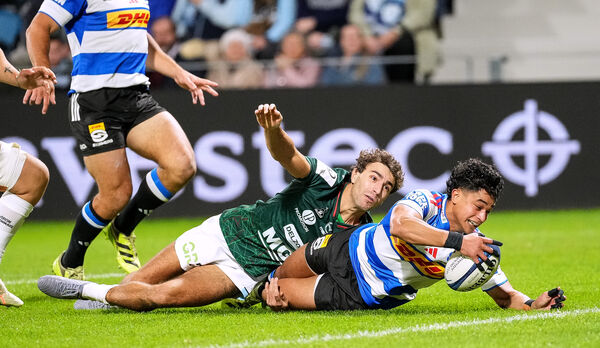
Johann van Graan’s Bath, the Stormers and defending champions Bordeaux made big statements in the opening round of this season’s Investec Champions Cup.
viron Bayonnais and Sale Sharks had the honour of hosting Round 1’s openers on Friday night when they welcomed DHL Stormers and Glasgow Warriors respectively.
Despite unwavering passion, Stade Jean-Dauger’s invincibility finally tumbled for the first time this season. South Africa’s DHL Stormers showed they meant business in Bayonne when Imad Khan went over two minutes into his debut start.
Saturday brought with it a Saracens lesson as they swiped aside ASM Clermont Auvergne, before Union Bordeaux Bègles got their title defence off the perfect start in South Africa.
The reigning champions scored 24 unanswered points in the second half against Vodacom Bulls to complete an historic comeback – they were the first French side to win away at the Bulls’ ring.
Brilliant Bordeaux bulldoze bewildered Bulls
Stade Rochelais and Leinster Rugby both got the better of Leicester Tigers and Harlequins respectively before Bristol Bears had to dig deep to overcome Scarlets by one point.
Closing out Saturday’s action was a masterclass from Bath Rugby. Last season’s EPCR Challenge Cup winners, Bath more than proved why many have them as favourites this year when they flew into a four-try, 18-minute lead at The Rec.
It ended 40-14 to the English side as they look to next week’s trip to RC Toulon.
Finalists Northampton Saints were forced to leave it late by valiant newbies Section Paloise before Stade Toulousain showcased their potential against Hollywoodbets Sharks.
La Rochelle brace for red-hot Stormers in PE
Eight tries, including three for Ange Capuozzo, more than sufficed for Ugo Mola’s men as they out-classed the Sharks 56-19. Oh, and a certain Antoin Dupont made his return to Investec Champions Cup action.
Gloucester Rugby-Castres Olympique and Edinburgh Rugby-RC Toulon closed out a memorable Round 1.
International Rugby
Brilliant Bordeaux bulldoze bewildered Bulls
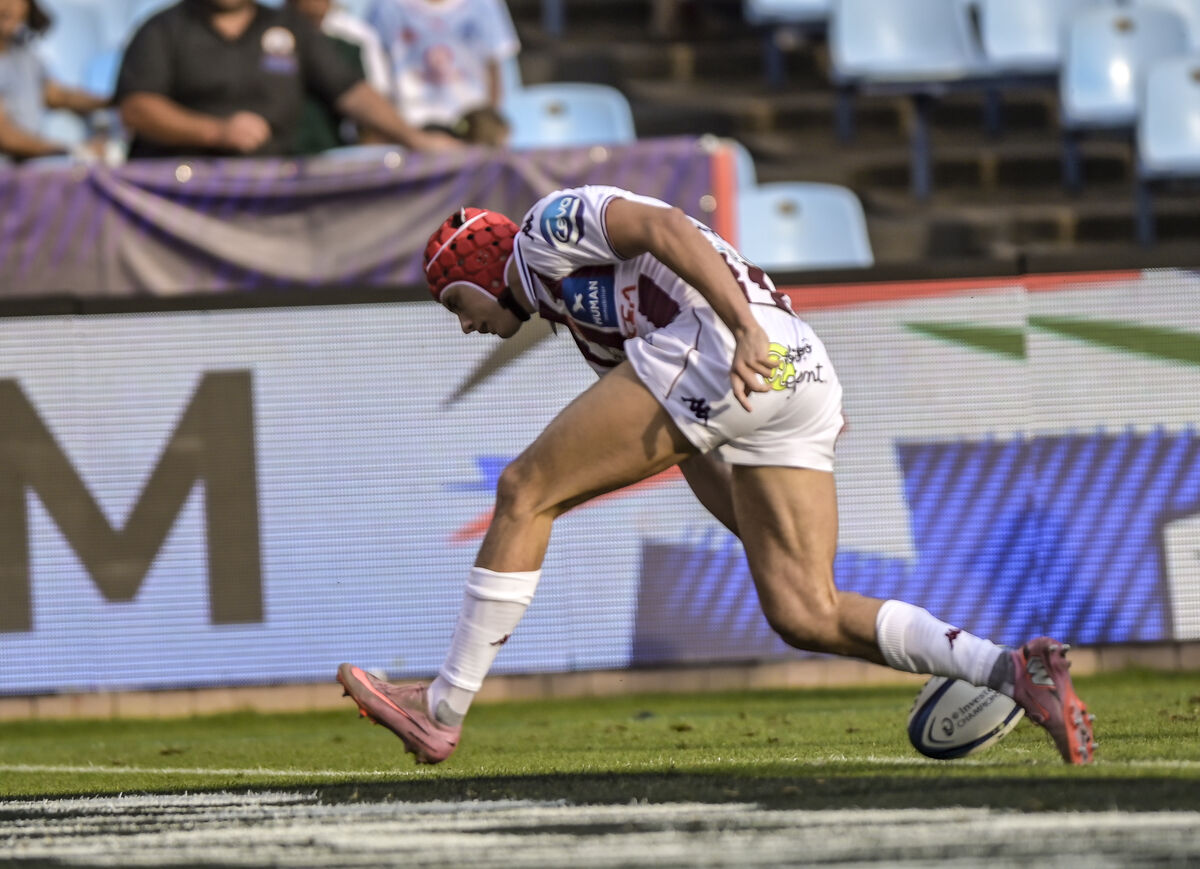
Bordeaux arrived at Loftus as reigning Investec Champions Cup winners and played like a side intent on keeping the crown. The French giants dismantled a disjointed Bulls outfit 46-33, producing a display that was composed, ruthless and dripping with international class, writes Mark Keohane.
And yes – the Bulls somehow led 33-22 at halftime.
The hosts scored five tries in 40 minutes yet never looked in control. The scoreboard offered false comfort and little else.
Bordeaux’s rhythm, tempo and accuracy suggested they were always the side dictating the contest, even when chasing the game.
Bordeaux travelled with 16 internationals in their match-day squad and their stars delivered. With Maxime Lucu and Matthieu Jalibert running the game like seasoned Test generals, and with Damian Penaud and Louis Bielle-Biarrey finishing with the brutality expected of world-class wings, the Pretoria crowd saw the gulf between elite European champions and a South African side still searching for cohesion.
It was breathless early on.
Bordeaux were seven points clear inside three minutes. The Bulls replied, faltered, struck back again, conceded again, and then surged with three late first-half tries. It looked dramatic on paper, but on the field the French were calmer, more accurate and operating with a clarity the Bulls could not match.
Jalibert toyed with the defence, his footwork and timing repeatedly opening space for a slick midfield. Bielle-Biarrey crossed twice, Penaud added to his outrageous tournament tally, and Bordeaux’s pack kept supplying clean, quick ball.
Once the second half kicked off, the Bulls vanished as an attacking threat. The champions tightened their grip, erased the deficit, and moved into a commanding lead with the kind of composure that wins knockout matches.
The Bulls had chances to claw it back to a single-score game, but their basics imploded. A crucial line-out was lost, the scrum wobbled, and the handling in the backline betrayed panic rather than purpose. Bordeaux, on the counter, could easily have added more.
This was a thorough reminder of what a title-winning squad looks like. Seven tries, four conversions and a penalty told the story.
Handré Pollard was solid early, kicked four from five, but a yellow card and two poor decisions shifted momentum the wrong way. De Klerk and Moodie worked tirelessly on the wings, and the loose trio put in the hard metres, but collectively the Bulls were outclassed.
And the biggest red flag: defence.
It hasn’t been good in the URC and it was worse here. Too many missed one-on-one tackles. Too little scramble. Too little structure. Bordeaux didn’t so much pick locks as walk through open doors.
With just 7,300 supporters turning up, the Bulls needed to deliver something worthy of their faithful. Instead, they teased with ten minutes of excellence and followed it with forty minutes of confusion and concession.
Bordeaux left Pretoria looking every bit a team chasing consecutive European titles. The Bulls left with more questions than answers, too few of them comforting.
Scorers
Bulls
Tries: Sebastian de Klerk, Reinhardt Ludwig, Akker van der Merwe, Canan Moodie, Jeandré Rudolph
Conversions: Handré Pollard (4)
Bordeaux
Tries: Damian Penaud, Louis Bielle-Biarrey (2), Maxime Lamothe, Boris Palu, Matthieu Jalibert, Salesi Rayasi
Conversions: Jalibert (3), Maxime Lucu
Penalty: Jalibert
BULLS – 15 Willie le Roux, 14 Canan Moodie, 13 David Kriel, 12 Harold Vorster, 11 Sebastian de Klerk, 10 Handré Pollard, 9 Paul de Wet, 8 Marcell Coetzee (c), 7 Reinhardt Ludwig, 6 Marco van Staden, 5 JF van Heerden, 4 Cobus Wiese, 3 Mornay Smith, 2 Akker van der Merwe, 1 Alulutho Tshakweni.
Bench: 16 Johann Grobbelaar, 17 Gerhard Steenekamp, 18 Wilco Louw, 19 Ruan Nortje, 20 Elrigh Louw, 21 Jeandré Rudolph, 22 Embrose Papier, 23 Stravino Jacobs.
BORDEAUX BÈGLES – 15 Romain Buros, 14 Damian Penaud, 13 Nicolas Depoortere, 12 Yoram Moefana, 11 Louis Bielle-Biarrey, 10 Matthieu Jalibert, 9 Maxime Lucu (c), 8 Temo Matiu, 7 Cameron Woki, 6 Bastien Vergnes-Taillefer, 5 Adam Coleman, 4 Boris Palu, 3 Carlü Sadie, 2 Maxime Lamothe, 1 Jefferson Poirot.
Bench: 16 Gaetan Barlot, 17 Matis Perchaud, 18 Ben Tameifuna, 19 Jonny Gray, 20 Tiaan Jacobs, 21 Arthur Retiere, 22 Rohan Janse van Rensburg, 23 Salesi Rayasi.
International Rugby
Super Stormers dream of Investec Champions Cup glory

John Dobson’s super Stormers are starting to dream of Investec Champions Cup glory after a stunning away win against Bayonne in France in the 2025/26 season’s opening round.
The Stormers won 26-17, despite being a player down for the final half hour.
Dobson was thrilled with the win, coming a week after a history-making first win the URC against Munster in Limerick, Ireland.
The Stormers, who are six from six in the URC, return to South Africa to play another French giant, La Rochelle next weekend. It won’t be in Cape Town as the DHL Stadium is not available and the match will be played at the Nelson Mandela Bay Stadium in Gqeberha.
Dobson mixed and matched for the Bayonne showdown, but pre-match insisted he had picked a match 23 good enough and talented enough to win against Bayonne, who had lost just once at home in the 2024/25 season in all competitions.
Dobson entrusted the talented 21 year-old scrum half Imad Khan to start and the former Bishops pupil and SA Schools star produced a Player of the Match performance. Loose-forward Paul de Villiers, the former SA under 20 captain, was against outstanding, having been the Player of the Match in Limerick a week ago.
WATCH: MATCH HIGHLIGHTS OF THE STORMERS WIN V BAYONNE
Several of the Stormers backs are not regular starting options, which makes the win that much more impressive, but Dobson said it was a credit to the depth within the squad that results like the one in Bayonne are possible without the likes of Springboks Damian Willemse, Sacha Feinberg-Mngomezulu, Cobus Reinach and Warrick Gelant, with the backline quartet not in action in Bayonne.
The Stormers made twelve line breaks to Bayonne’s two, but will lament not being more accurate in their finishing.
SA TEAMS CHASE THEIR FIRST STAR
Loose-forwards De Villiers (14 tackles), BJ Dixon (10) and Ruan Ackermann (7) were strong defensively and lock Connor Evans made 11 tackles. Dixon secured five line out takes, the most for the Stormers, and De Villiers’ all-round contribution was impressive, winning two turnovers, one offload, a line break, nine carries, and 21 metres on attack. He also beat four defenders, as did fullback Simelane.
Dixon (70 minutes), Ackermann (48) and Roos (42), were strong in their carries.
AFRICA PICKS: PICK THE STORMERS TO WIN
Clinton Swart, in his first start at flyhalf kicked two conversions and four penalties for 16 points, while fullback Wandisile Simelane made the most attacking metres (94).
The Stormers line out return was 100 percent.
Bayonne:
Tries: Mori, Erbinartagaray, Paulos
Con: Segonds
DHL Stormers:
Tries: Khan, De Villiers
Cons: Swart 2
Pens: Swart 4
DHL Stormers: 15 Wandisile Simelane, 14 Dylan Maart, 13 Jonathan Roche, 12 Dan du Plessis, 11 Leolin Zas, 10 Clinton Swart, 9 Imad Khan, 8 Ruan Ackermann, 7 Ben-Jason Dixon, 6 Paul de Villiers, 5 Connor Evans, 4 Salmaan Moerat (captain), 3 Neethling Fouché, 2 JJ Kotzé, 1 Ntuthuko Mchunu.
Replacements: 16 Lukhanyo Vokozela, 17 Ali Vermaak, 18 Sazi Sandi, 19 Adré Smith, 20 JD Schickerling, 21 Evan Roos, 22 Dewaldt Duvenage, 23 Ruhan Nel.
BREAKDOWN OF ALL STORMERS AND BAYONNE”S PLAYER AND TEAM STATISTICS
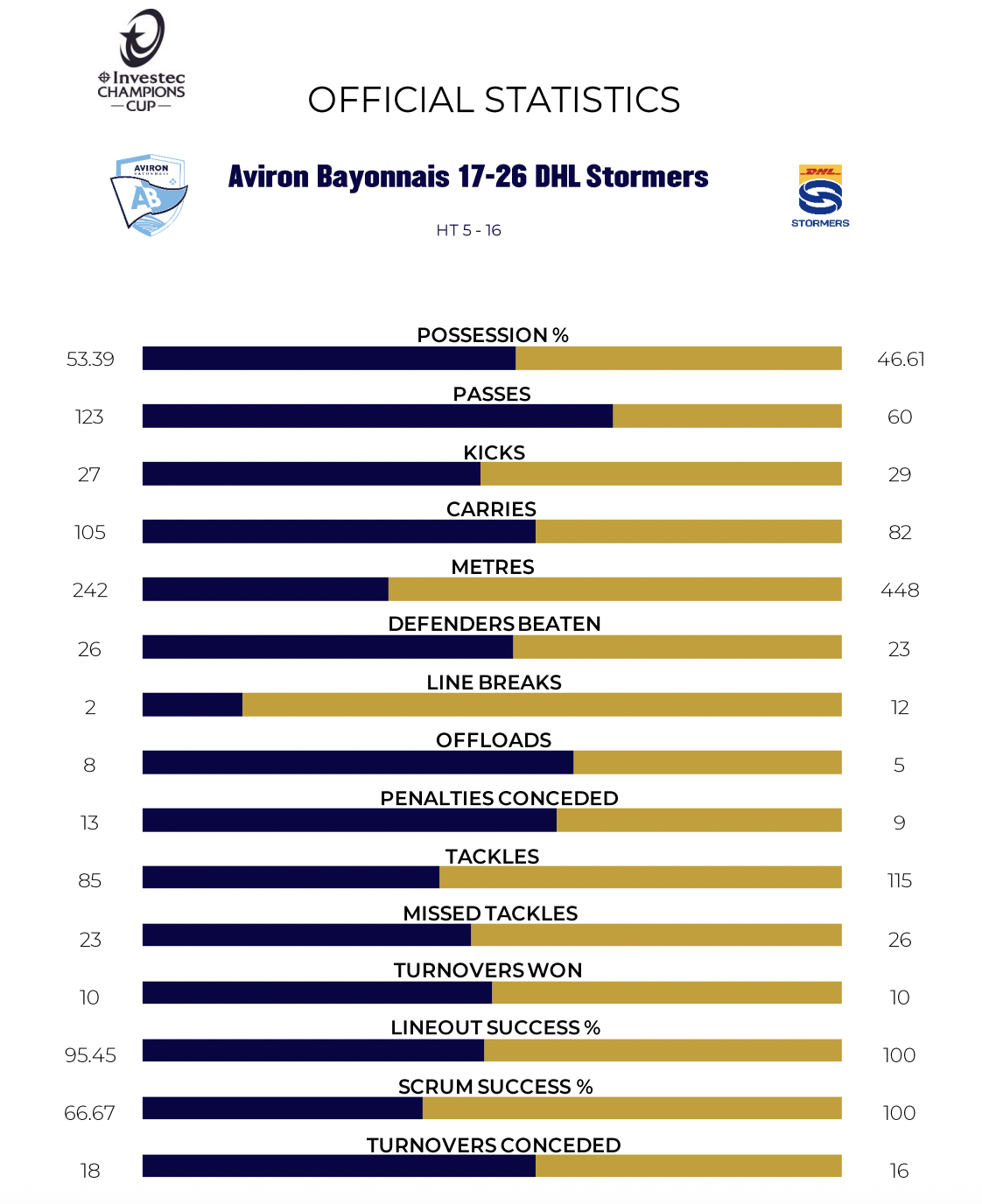
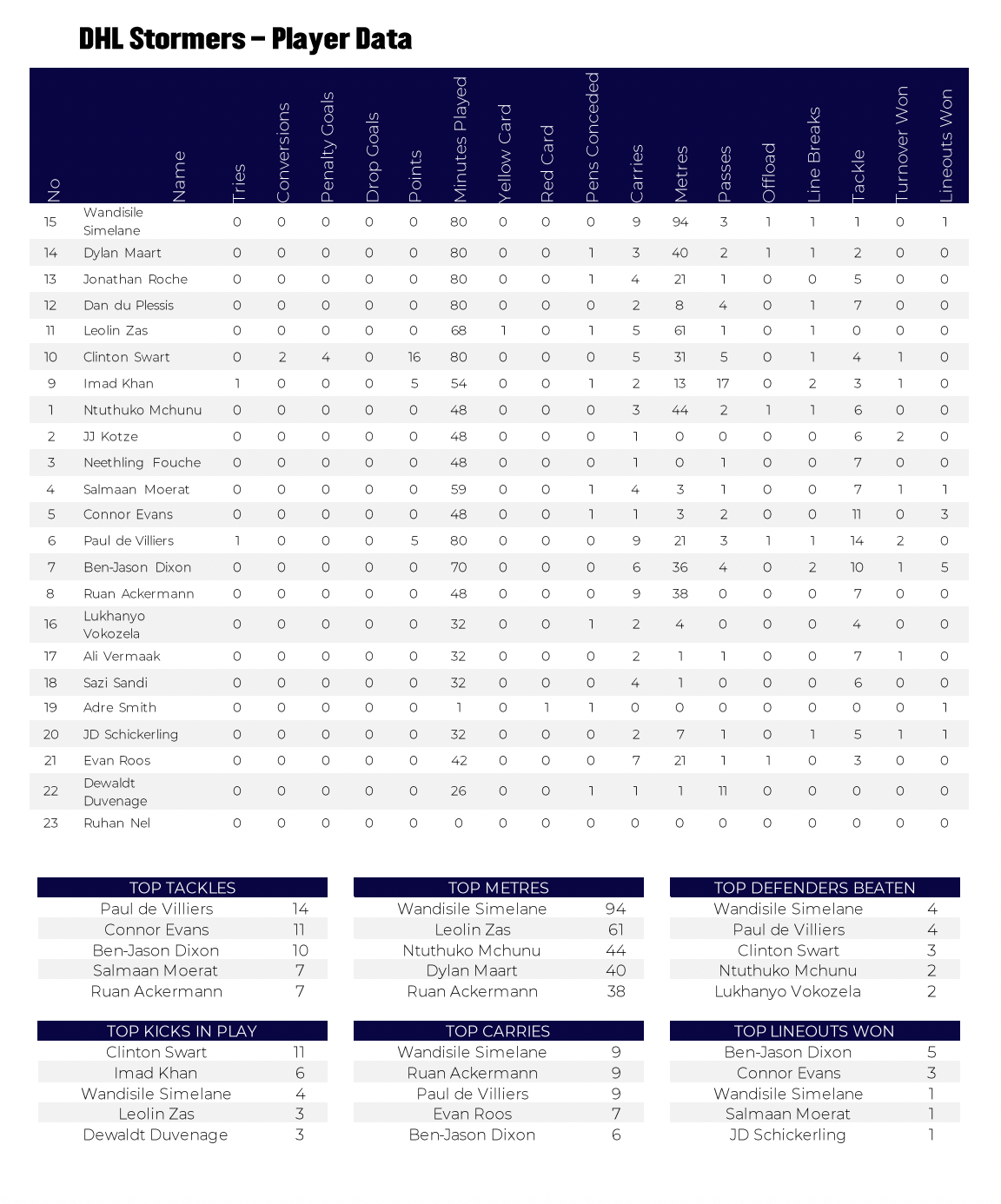
International Rugby
Investec Champions Cup: Bulls back their Boks to bully Bordeaux
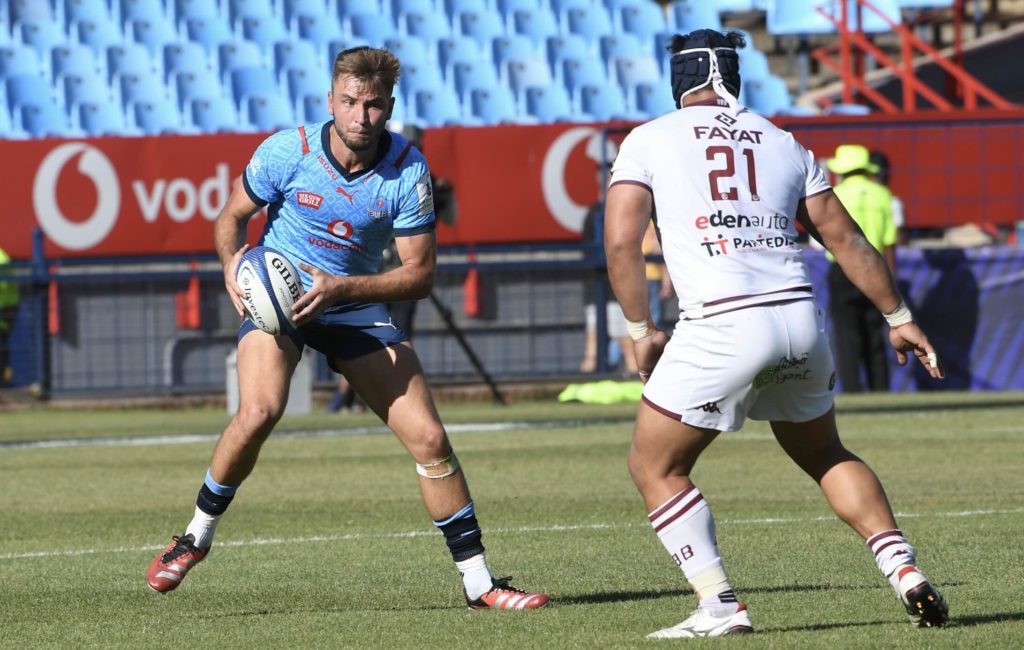
The Bulls are backing their Boks to bully champions Bordeaux of France in this weekend’s opening round of the Investec Champions Cup, writes Mark Keohane.
Every Bulls player on tour with the Springboks in November will be involved as the Bulls look to maker a statement performance against last season’s champions.
Bordeaux and the Bulls played each other at Loftus in the 2024 Pool Stages, with the Bulls winning a 12-try thriller 46-40. Both teams scored six tries two seasons ago and the difference ultimately proved two penalty kicks.
Handre Pollard, the king of kickers, returns to Loftus for his first start in the Champions Cup in the colours of the Bulls. Pollard’s previous Champions Cup history had been with French club Montpellier and English club Leicester.
Pollard will be significant to any Bulls challenge in the greatest club competition in the world, but it is the potency of a power bench that will be the determining factor in this match.
The starting front row from the Springboks 73-0 against Wales in Cardiff a week ago, are on the bench in Gerhard Steenekamp, Johann Grobbelaar and Wilco Louw. Ruan Nortje, the Boks form lock, is among the replacements, as are Elrigh Louw and Embrose Papier, who have played for the Springboks.
AFRICA PICKS: HOW TO CASH IN ON BULLS, SHARKS AND STORMERS
Louw will start his first match in a year after a lengthy spell out of the game because of injury.
Springboks flyer Canan Moodie links up with Springboks Test Centurion Willie le Roux in a back three complimented by the talents of winger Sebastian de Klerk and current Bok Marco van Staaden joins former Bok Marcelle Coetzee in the back row.
There are 13 Springboks in the match 23, with eight of them part of the Springboks 2025 squads. That includes Elrigh Louw, who was picked in the initial squads but did not play because of injury rehabilitation.
WATCH: KEO & ZELS ON THE BULLS, STORMERS AND SHARKS
The Stormers have also mixed and matched for their opening round at Bayonne, where the hosts only home defeat last season was to the Bulls in the Champions Cup.
Boks back superstars Sacha Feinberg-Mngomezulu, Damian Willemse and Cobus Reinach were not considered for the match, given their heavy workloads for the Stormers and Boks over the past two months, but Boks flanker BJ Dixon will play.
The Sharks, who play six-times champions Toulouse, are without several of their current Boks, but will still field a match 23 with international experience.
It is unlikely to be enough to prevent a one-side beating, given the Sharks struggles all season in the URC.
BORDEAUX BÈGLES – 15 Romain Buros, 14 Damian Penaud, 13 Nicolas Depoortere, 12 Yoram Moefana, 11 Louis Bielle-Biarrey, 10 Matthieu Jalibert, 9 Maxime Lucu (c), 8 Temo Matiu, 7 Cameron Woki, 6 Bastien Vergnes-Taillefer, 5 Adam Coleman, 4 Boris Palu, 3 Carlü Sadie, 2 Maxime Lamothe, 1 Jefferson Poirot.
Bench: 16 Gaetan Barlot, 17 Matis Perchaud, 18 Ben Tameifuna, 19 Jonny Gray, 20 Tiaan Jacobs, 21 Arthur Retiere, 22 Rohan Janse van Rensburg, 23 Salesi Rayasi.
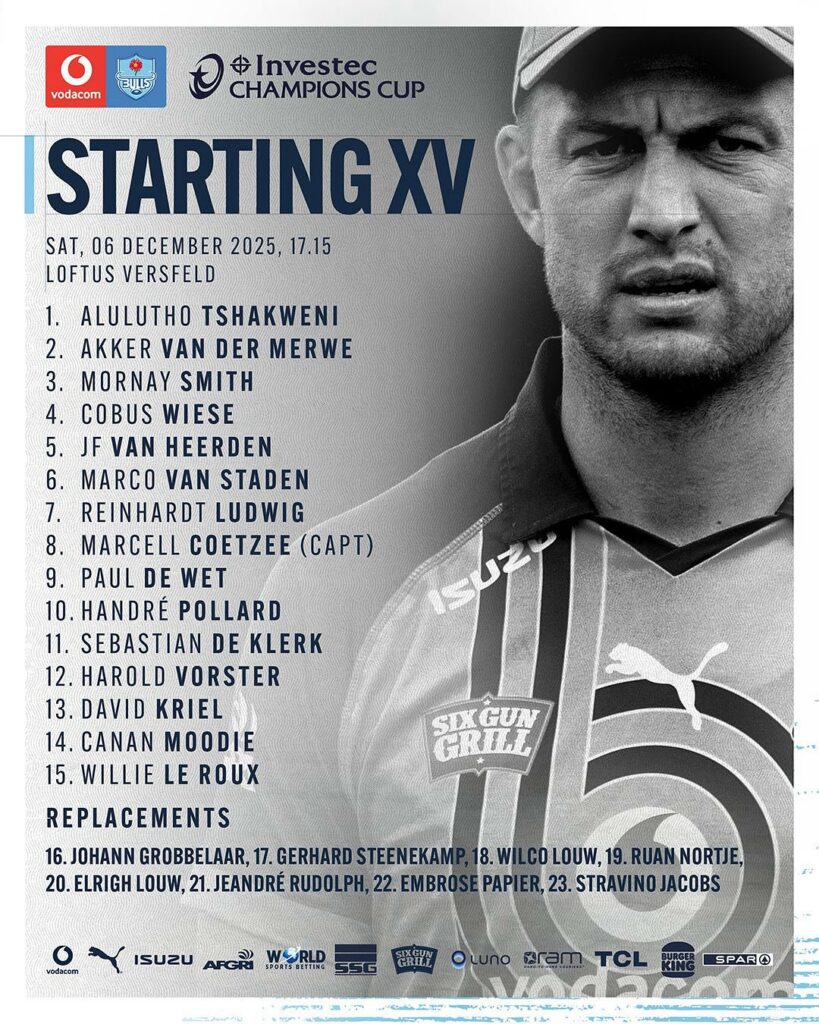
SOUTH AFRICA’S INVESTEC CHAMPIONS CUP TRIO CHASE THEIR FIRST STAR
International Rugby
Van Graan’s true impact at Munster revisited
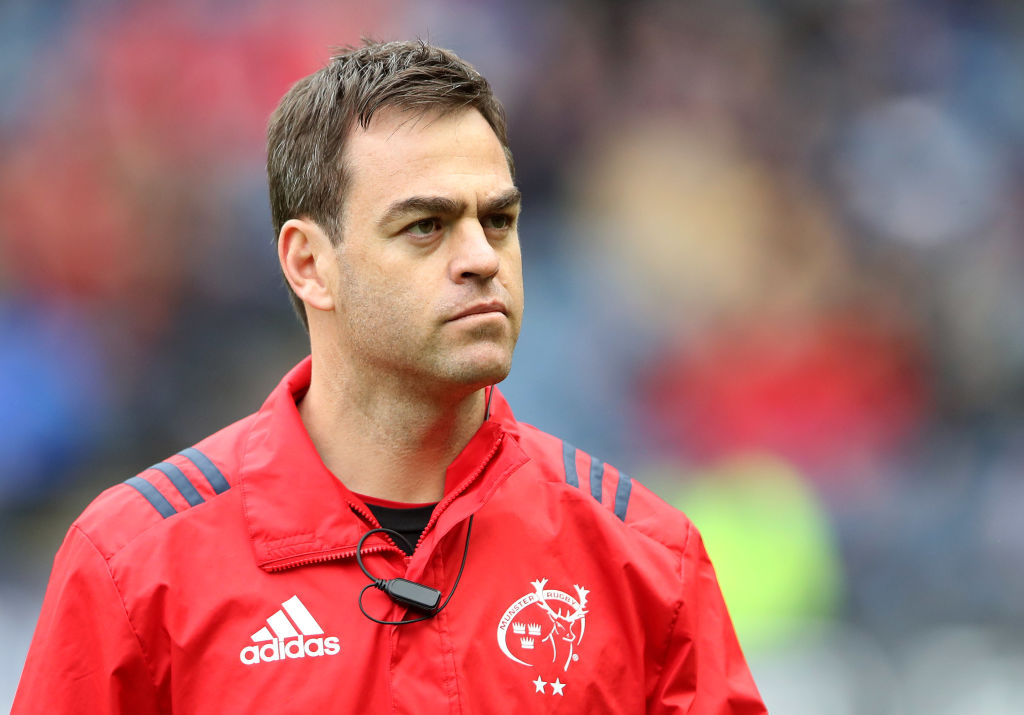
If ever there was a weekend to revisit Johann van Graan’s time at Munster then this is surely the one. And it could be that history is starting to pass more favourable judgement on his time there, and certainly of him as a coach. It should do.
As Bath host Munster in the Investec Champions Cup, in part this view is coloured by what van Graan has achieved at the Rec. On foot of leaving Munster in 2022, van Graan took over a side marooned at the foot of the English Premiership. Their rise since has been remarkable.
They ended that first season with a four-game winning run to finish eighth and qualify for the Champions Cup, where they reached the knockout stages for the first time in ages.
In his second season, Bath reached the Champions Cup knockout stages again and also finished second in the Premiership, only to lose the final to Northampton 25-21. Perhaps the biggest measure of the esteem in which he is held at Bath is that during that campaign van Graan signed a six-year extension up to 2029-30.
The club’s CEO Tarquin McDonald told TNT Sports: “We brought in an exceptional head coach and, really importantly, backed him. He’s a selfless leader. Genuinely it’s about team first and club first, and that’s so important.
“We extended Johann’s contract out to 2030 and the last time we went into a second cycle with a head coach was Jack Rowell, who was with us from ’78 to ’94; our first golden era as we like to call it, and, crazily, since then we’ve never been through a second cycle with a head coach.
“Where we are now, there’s continuity, which is absolutely vital for sporting success.”
The wisdom in that long-term extension was demonstrated last season, when Bath not only topped the table but hoovered up a treble of Premiership Cup (so ending a 17-year trophy drought), Challenge Cup and Premiership, which was their first league title in 29 years.
This is particularly ironic as the main source of criticism directed at can Graan is that his five seasons at Munster were trophyless. Yet, while Munster won the URC title under Graham Rowntree in 2022-23, is that too crude a yardstick?
Van Graan was derided for pointing to Munster’s 80 per cent winning record in his fifth season there. Yet it is true, and it has never been matched in Munster’s three completed seasons since. Indeed, Munster’s 67 per cent winning ratio overall in van Graan’s five seasons at Munster has dropped to 55.5 per cent in the three campaigns that followed.
Munster were also much more consistent, knocking on the door every season in both competitions. They reached three semi-finals and a final of what is now the URC before invariably running into the machine that was Leinster. In the Champions Cup, Munster also reached two semi-finals, a quarter-final and a round of 16. In the last three seasons they’ve had two last-16 exits and one quarter-final after that epic win in La Rochelle. That was their only knockout win in the Champions Cup since van Graan moved on.
His Wikipedia page says: “Van Graan’s Munster legacy is debated”. It adds: “While he took them to five semi-finals and a final, he never won a trophy. Some critics perceived his style as overly conservative.
“However, figures such as Simon Zebo have defended his record, describing Van Graan as a ‘master tactician’.”
Zebo told The Irish Times this week: “He goes into unbelievable detail. I would rate him very highly as a coach. He’s very good at finding little gaps or weaknesses in the opposition and he’s unbelievable at filling you with confidence and detail. He creates a very good environment. I enjoyed working with him and he’s a gentleman.”
Current players and coaches at Munster have said the same these past few weeks. In discussing his time at Munster, Tadhg Beirne told me, without being prompted: “I thought Johann was incredible when he was in there. I thought at times he got a hard rap for what he did, but in terms of the circumstances and what he was producing, it was very impressive.”
Beirne is not surprised by what van Graan has achieved at Bath.
“No, but if you look at his track record at Munster, he was getting us to semi-finals and finals all the time. I thought he was an unbelievable coach.
“I got on unbelievably well with him, and I thought he managed the group quite well. I thought he got the best out of a lot of players. I know, obviously, there’s going to be a lot of players who dislike him, because that’s like any coach, if you’re not playing, I suppose, as well, it’s easier not to like someone.
“I don’t know what the situation was in Munster at the time, but he probably wasn’t able to bring in the people he would have liked to have brought in. But what he achieved with us was still pretty impressive. It’s just you would have liked to have seen him have silverware on top of it, because I think he was deserving of it.”
John Hodnett was given his first Munster cap by van Graan, and admits his view is coloured by that.
“You always remember the coach that gave you your first cap, and he gave me my first cap. So yeah, I’d have good time for him. He’s a nice way about him. He’s a very nice man. He has a good plan in place. He gets good people in.”
Asked about van Graan’s legacy at Munster this week, Denis Leamy said: “Johann is a brilliant coach. He’s very highly rated. One thing that I’ve noticed here, you’ll never hear anyone say anything bad about Johann. He’s always spoken about in a really positive light.
“My own experiences with him have been nothing but insightful and he’s very generous with his knowledge. I worked with him here for maybe three months when I was working with the academy and I just thought he was a fountain of knowledge.
“It’s great to see him push on and achieve such great things with Bath over the last couple of years. They won three trophies last year, so fair play to him. It’s a great sign of his progression.”
International Rugby
South Africa’s top club trio chase their first Investec Champions Cup star
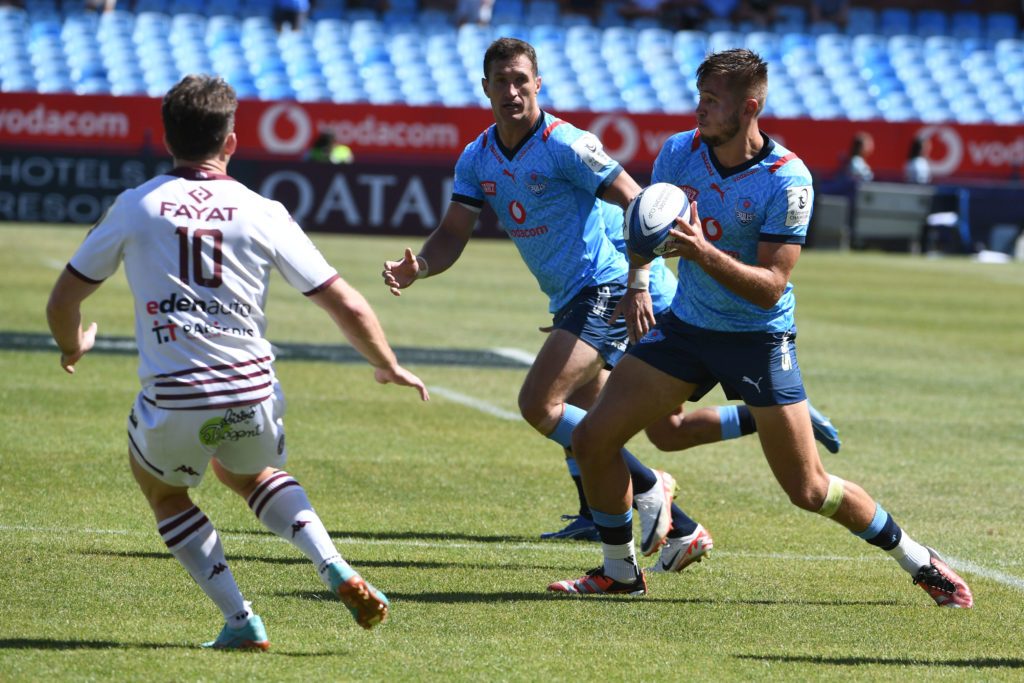
South Africa, at Test level, rules the rugby world, but in the Investec Champions Cup, the toughest club competition in the sport, the winning of the golden star has remained elusive for South Africa’s top club trio, writes Mark Keohane.
Toulouse, with six stars (titles), are the most successful club in the history of the Investec Champions Cup. Ireland’s Leinster have four stars and Toulon and Saracens have three each. For the rest, it has been a fight to get on the board and just 13 of the 40 clubs from Europe and South Africa have won the title.
It shows just how tough it is to succeed in the most battle hardened and complex knockout tournament in world rugby.
Saracens and England veteran Jamie George described the tournament as a World Cup knockout played over six months, with each match, from the opening league match, to the final, a knockout.
Home wins, in the league stages are non-negotiable, and wins on the road are as golden as the star the players are chasing.
Northampton’s Saints last season travelled to Pretoria and stunned the Bulls in the league stage, which proved crucial to their play-offs, where the English club won at the Aviva Stadium in Dublin against Leinster, before being edged 28-20 by France’s Bordeaux.
The defending champions are in South Africa to start the defence of their historic first ever Investec Champions Cup title. They play the Bulls at Loftus in Pretoria on Saturday, revisiting the scene of their dramatic 46-40 league defeat to the Bulls on the 20th January, 2024. It is the only time the two teams have met in the competition.
Both teams scored six tries in a 12-try thriller, with Bordeaux finishing the stronger.
Bordeaux, winners of the title in Dublin last season, beat their French rivals Toulouse in the semi-finals, but lost in the final of the Top 14.
The Bulls also lost in the final of last season’s United Rugby Championship, beaten by Leinster in Dublin, and both teams have had an indifferent start to their local competitions. The Bulls are three from six in the URC, having lost their last two matches, including a stunning home upset against the South African Lions last Saturday, while Bordeaux are also three from six in the Top 14, including successive defeats in the past fortnight, at home to Pau (33-34) and away to Montpellier (24-28).
The defending champions have a star-studded international squad with French flyhalf Matthieu Jalibert and flying wingers Louis Bielle-Biarrey and Damian Penaud among the best in the world.
South African prop Carlu Sadie is a regular in the Bordeaux set-up, as is the popular former All Blacks and current Tongan captain and 150 kilogram prime rugby beef Ben Tameifuna.
French scrum half Maxime Lucu is the general of a squad that includes a handful of imports from Australia and the Pacific Islands.
The Bulls, with 20 Springboks, past and present in their Champions Cup squad, will have their imposing Bok quartet of Gerhard Steenekamp (loosened prop), Johan Grobelaar (hooker), Wilco Louw (tighthead prop) and Ruan Nortje (lock), back for the tournament.
All four featured prominently in the Springboks five successive Tests wins in the Northern Hemisphere during November.
Springboks double World Cup winner Handre Pollard is another who will significantly improve the Bulls prospects of being the first South Africa team to wear an Investec Champions Cup star.
The struggling Sharks have the toughest of starts, away to Toulouse this weekend, while the in-form Stormers are in France to play Bayonne, who last season lost just once at home. That defeat was to the Bulls.
For all the latest EPCR Investec Champions Cup News
Follow the news on the Bulls, Sharks and Stormers
Investec Champions Cup fixtures (Round 1, SA times)
Friday, 5 December
Bayonne vs Stormers, 10pm
Sale Sharks vs Glasgow Warriors, 10pm
Saturday, 6 December
Saracens vs Clermont, 3pm
Bulls vs Bordeaux Begles, 5:15pm
La Rochelle vs Leicester Tigers, 7:30pm
Leinster vs Harlequins, 7:30pm
Scarlets vs Bristol Bears, 10pm
Bath vs Munster, 10pm
Sunday, 7 December
Pau vs Northampton Saints, 3pm
Toulouse vs Sharks, 5:15pm
Gloucester vs Castres, 5:15pm
Edinburgh vs Toulon, 7:30pm
KEO News Wire
EPCR Challenge Cup set for a spectacular 30th season
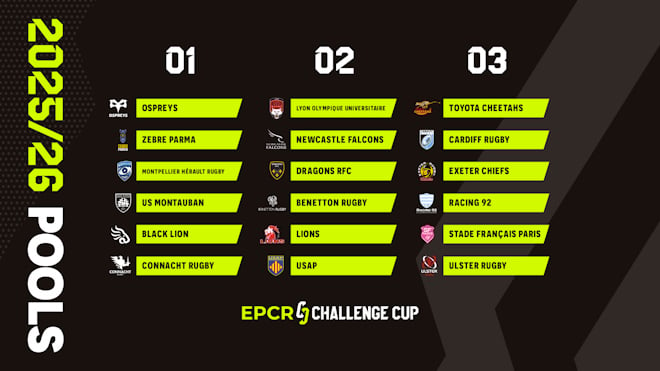
The EPCR Challenge Cup returns this coming weekend for what promises to be a landmark 30th season, with action kicking off from 5 to 7 December. Clubs from France, England, Wales, Georgia, South Africa, Italy and Ireland will begin their pursuit of glory as the road to the 2026 Finals in Bilbao officially begins.
The season opener will set the tone in emphatic fashion. On Friday 5 December, Ulster Rugby host Racing 92 at the Affidea Stadium, as two European powerhouses prepare to bring all their experience and intensity to the first clash of the campaign.
Ulster Rugby captain Iain Henderson said, “We are really excited to get our European campaign underway at Affidea Stadium against Racing 92.
“European nights are always special for us, the fans always get behind us, and we have a big French side in town which always brings a lot of excitement. The team is buzzing at the thought and I’m sure we will see some exciting rugby!”
Racing 92 centre Gaël Fickou said: “We are delighted to kick off our Challenge Cup campaign with this opening match of the 2025-2026 season. It’s a demanding start, but one that the whole team is eagerly awaiting. Our ambition is clear: to reach the final stages and show Racing 92 at its best on the European stage. We are proud to represent French rugby.”
On Saturday, 6 December, Lyon Olympique Universitaire will be aiming to go one step further than last season in their quest for a second title, as they welcome Newcastle Red Bulls to Matmut Stadium de Gerland for a primetime showdown.
Lyon Olympique Universitaire scrum-half Baptiste Couilloud said: “It’s always interesting to play against teams from other countries. The style of play is different, it’s a different kind of preparation. We’re looking forward to welcoming them, especially in front of our home crowd.”
Speaking about the club’s history in the competition, Couilloud said: “Even though we have some big games coming up in the TOP 14, we are eager to start a new EPCR Challenge Cup campaign. It’s a competition that means a lot to us. We won it in 2022 in Marseille against Toulon. It was a wonderful memory. The first major trophy for the club since the sport turned professional! Last year, we reached the final at the Principality Stadium, one of the most beautiful stadiums in the world. Unfortunately, we lost.”
Also on Saturday, newcomers US Montauban make their long-awaited return to European competition after 15 years away. They will be looking to make an immediate impression when they travel to Zebre Parma.
Two-time winners Montpellier Hérault Rugby begin their own campaign on the road, taking on Georgian invitees Black Lion at Tbilisi’s Avchala Stadium.
On the same day, Cardiff Rugby – another two-time winner – kick off their season with a heavyweight contest against 2017 champions Stade Français Paris at Stade Jean Bouin. Simultaneously, South Africa’s Lions host Benetton Rugby at Ellis Park in what promises to be another fiercely contested matchup.
The action continues on Sunday, 7 December, as USAP and Dragons RFC open the final day of Round 1. Later that afternoon, Ospreys welcome Irish challengers Connacht Rugby, before Exeter Chiefs close out the weekend at Sandy Park against South Africa’s Toyota Cheetahs. The Chiefs will be looking to carry over the momentum from their impressive Gallagher PREM form.
Dayffyd Jenkins, Exeter Chiefs lock said: “We’re really looking forward to the Challenge Cup and getting to kick off our campaign at home is really important to us.
“We know it’s going to be an incredibly tough competition, but we’re hoping to replicate the strong form we’ve enjoyed in the Gallagher PREM to try to progress as far as we can in the Challenge Cup.
“Playing rugby at Sandy Park is a massive boost for us, and we’d love to give our fans an exciting performance in our opening match against Toyota Cheetahs.”
With EPCR Challenge Cup action just days away, fans are already eyeing the EPCR Finals Weekend in Bilbao, on 22 and 23 May 2026 – the biggest weekend in international club rugby.
Demand has been extraordinary, with over 50% of tickets sold for both the EPCR Challenge Cup and the Investec Challenge Cup before the new season even kicks off.
Bilbao is the ideal backdrop for an EPCR Finals Weekend, and supporters are encouraged to act quickly to avoid missing out.
International Rugby
World reaction: Boks turn Cardiff into a crime scene
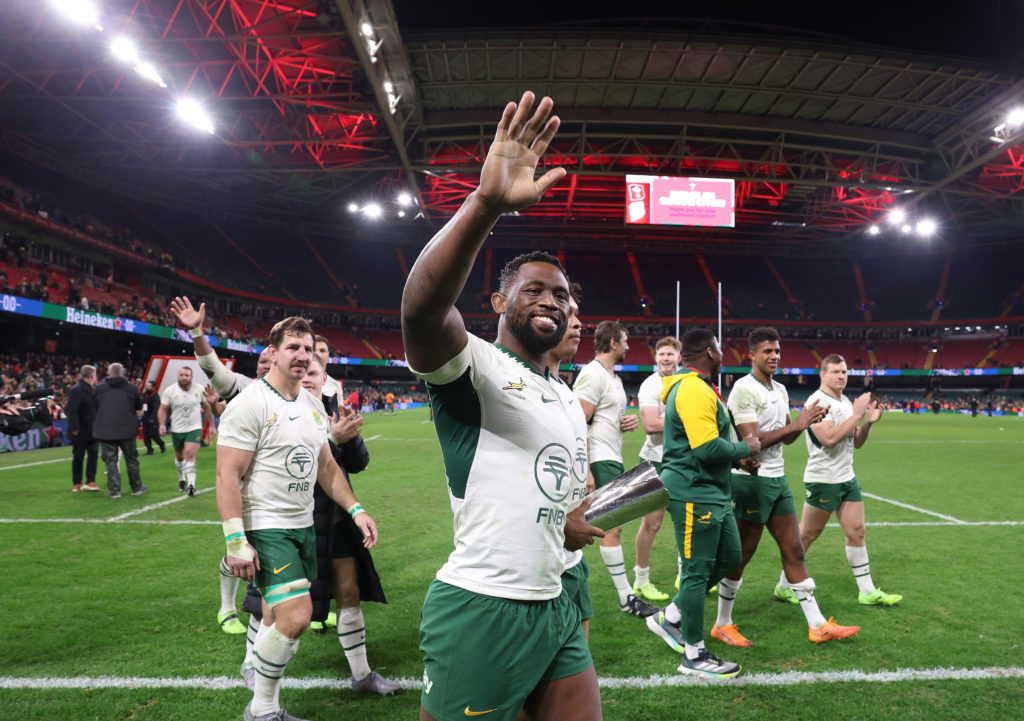
The global rugby press reaction to the Springboks 73-0 slaughter of Wales in Cardiff was split three ways: awe at the Boks, horror at Wales, and anger at the red-carded Eben Etzebeth.
The global rugby media didn’t so much report on South Africa’s 73–0 demolition of Wales as conduct a post-mortem.
Eleven tries, a clean sheet and a performance dripping with menace left the Welsh press stunned, the English papers grim, and the New Zealanders nodding with familiar respect. For the Springboks, it was another ruthless reminder of the standard they set.
For Wales, it was a national reckoning.
WalesOnline labelled it the “darkest day in Welsh rugby”, a humiliation years in the making. Their writers spoke of sadness and inevitability as a proud Test nation was “pulverised” in its own cathedral.
The Times questioned whether “men against boys” even captured the mismatch, praising South Africa’s precision while condemning Eben Etzebeth’s moment of madness as the only stain on an otherwise brutal masterclass.
The Sunday Telegraph called Wales “pointless” in every sense: a non-contest, a miscalculated fixture, and a record defeat that exposed the gulf in class.
The Rugby Paper described an “avoidable mismatch” that taught Wales nothing about their future and reinforced everything about South Africa’s relentlessness.
From a South African lens, the tone was clinical rather than triumphant.
SA Rugby Magazine, TimesLIVE and Keo.co.za all stressed that this was the full stop on an unbeaten tour and another data point in Rassie Erasmus’s expanding blueprint. Fringe players flourished, structure and brutality blended seamlessly, and the trademark refusal to concede even a consolation point in the 80th minute said more about this team’s identity than the scoreline.
Even in New Zealand, the reaction was clear: NZ Herald credited a “superpower doing superpower things” and noted that South Africa end the year not only as world champions, but as the sport’s pace-setters.
The world didn’t just witness a hiding. It witnessed a statement.
South Africa’s standards are non-negotiable. Their depth is frightening.
And Wales – under-strength, underpowered and overwhelmed.
KEO & ZELS – SIYA’S BOKS PURR WITH PERFECTION
WalesOnline – “Welsh team crumble in record home defeat”
WalesOnline’s match coverage framed this as the darkest day in Welsh rugby at the Principality: 11 unanswered tries, first time “nilled” at home in decades, and a scoreboard that felt like an execution rather than a contest. Their pieces stressed how under-strength Wales were, but made it clear that selection politics and WRU mismanagement created the circumstances for this humiliation. The tone mixed shock and resignation – the sense that this 73-0 was years in the making. Follow-up reaction columns spoke of “very real sadness” and a tragic unravelling of a proud Test nation in front of its own people. Flashscore+1
Welsh Sunday voice – Nation.Cymru / Welsh reaction
As a distinctly Welsh lens outside the big UK dailies, Nation.Cymru’s weekend take treated 73-0 as a national reckoning. The piece stressed that the result wasn’t just about missing Premiership-based players; it was about a structural decay in Welsh rugby – from pathway to finances – exposed brutally by the world champions. The article highlighted a fanbase oscillating between anger and apathy, a stadium with worrying gaps in the stands and a governing body “out of answers”. It argued that the scoreline must force WRU members to confront whether the current model can produce anything other than more days like this. The Independent+1
The Times / Sunday Times (London) – Steve James
In The Times (from the same London stable as the Sunday Times), Steve James called it “every bit as grim as feared”: a physical mismatch that made “men against boys” feel like understatement. He emphasised the Boks’ scrummage and aerial dominance, Sacha Feinberg-Mngomezulu’s 28-point masterclass and Wales’ inability to execute even basic set-piece chances. But his central theme was Etzebeth: the eye-gouge described as a “blatant act of thuggery” that soiled a magnificent team performance and will likely bring a long ban. For Wales, he portrayed a low ebb – empty seats, fragile confidence and shallow depth laid bare. The Times
Sunday Telegraph – James Corrigan
For The Sunday Telegraph, James Corrigan’s live report and follow-up hammered home one idea: “pointless Wales”. His copy stressed how uncompetitive the hosts were from the opening scrum, how quickly South Africa’s power game turned into a procession, and how little value the fixture offered anyone by the final quarter. Corrigan underlined that this was Wales’ worst home defeat and first Cardiff whitewash since the 1960s, and questioned the wisdom of scheduling such a mismatch outside the Test window. He also leaned into the Etzebeth incident, arguing that an 11-try rout did not need to be accompanied by such unnecessary nastiness. Telegraph+1
The Rugby Paper (UK) – weekend broadsheet
The Rugby Paper’s headline – “Steve Tandy’s pointless side put to shame in 11-try thrashing” – captured its harsh verdict. Their report stressed how this was a weakened Wales, stripped of Premiership-based players, but insisted that didn’t excuse the scale of collapse. The analysis described South Africa as operating in a different weight division, with their bench alone out-capping the entire Welsh match-day 23. The paper portrayed the game as a damaging non-contest that taught Wales nothing, eroded public faith and raised serious questions about WRU strategy. The Etzebeth red card was the grim coda to what they saw as a “needless mismatch”. Ground News+1
Planet Rugby – Winners & Losers
Planet Rugby’s “Wales v Springboks Winners & Losers” piece leaned into the contrast: Sacha Feinberg-Mngomezulu, Andre Esterhuizen and the Bok pack among the big winners; Eben Etzebeth and the sport’s image squarely in the losers column. They praised South Africa’s “floor-filling tunes” in attack – the variety of their strike plays and the fluency of a heavily rotated side – and highlighted Esterhuizen as the poster boy of Rassie’s hybrid revolution, this time unleashed as a classic ball-carrying 12. On Wales, the verdict was that an under-powered side were “out of their depth” and that 73-0 will haunt the WRU for years. Planet Rugby+1
Rugby365 – Warren Fortune & Leezil Hendricks
On Rugby365, Warren Fortune’s match report and Leezil Hendricks’ player ratings built a coherent picture: South Africa ended their Nations Series with a “73-0 command performance”, scoring 222 points across the tour and conceding just 51. The site stressed how thoroughly the Boks dominated the collisions and set piece, and how many so-called fringe players enhanced their 2027 World Cup credentials. Follow-up video pieces focused on Rassie Erasmus’ reaction to Etzebeth’s red – Erasmus admitting the card was justified and that “the optics weren’t great”. At the same time, Rugby365 emphasised how ruthlessly the Boks defended their line in the closing minutes to protect the nil. Rugby365+3Rugby365+3Rugby365+3
Keo.co.za – Mark Keohane
On Keo.co.za, your “Andre the Giant & his fellow Boks slay the Dragons” column framed 73-0 as the ultimate expression of Rassie’s “no let-up” mentality. You leaned into the symbolism of the Boks still fighting for a turnover in the 79th minute with the score already at 73-0, arguing that this spoke to the aura and internal standards of this group. The piece highlighted the dominance of the forwards, the impact of Esterhuizen in his new hybrid role, and the statement made by finishing an unbeaten tour with a record win. Etzebeth’s red was acknowledged, but the core theme was character and ruthlessness rather than controversy. KEO.co.za+2KEO.co.za+2
Sunday Times South Africa / TimesLIVE
Within the Sunday Times SA / TimesLIVE stable, coverage underlined the professional coldness of the Bok performance rather than the chaos of the scoreline. The Business Day/Sunday Times reports talked of a “clinical” and “commanding” demolition that completed a clean sweep on tour and cemented South Africa’s No 1 ranking. They emphasised how many combinations Rassie experimented with across Japan, France, Italy, Ireland and Wales, yet still produced an 80-minute performance in Cardiff. The Etzebeth incident was treated as an ugly, isolated flashpoint in an otherwise near-perfect collective exhibition from a side that “simply don’t do dead rubbers”. Business Day+2Sunday Times+2
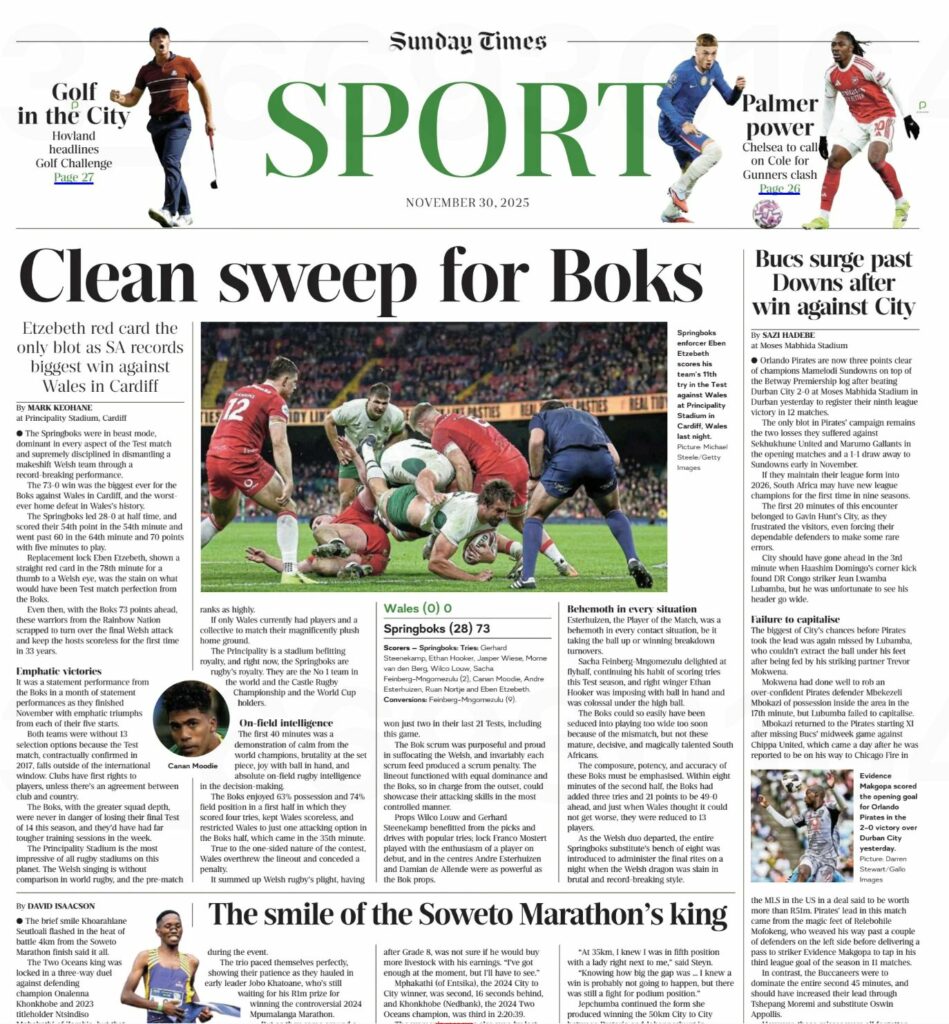
SA Rugby Magazine – Borchardt & co.
SA Rugbymag.co.za ran a suite of pieces: Simon Borchardt’s “Brilliant Boks demolish Dragons” match report, features on Rassie being “proud of hungry Boks”, Siya Kolisi hoping the red card wouldn’t overshadow things, and a big-picture “Springboks gaze down on rugby world”. The mag stressed that 73-0 was one more data point in a two-year stretch of dominance, not a freak outlier. They homed in on the hunger of fringe players, the work-rate in chasing the shut-out and the seamless integration of youngsters like Feinberg-Mngomezulu. The red card was acknowledged but framed as a disciplinary headache rather than a stain on the team. SA Rugby magazine+3SA Rugby magazine+3SA Rugby magazine+3
AFRICA PICKS: CASHING IN ON THE BOKS
NZ Herald – Kiwi view on a Bok juggernaut
The NZ Herald piece (“Springboks crush Wales 73-0 in historic test demolition”) was a wire-style report but with a clear Kiwi subtext: respect for a rival superpower doing superpower things. It highlighted Feinberg-Mngomezulu’s Llandovery College link and 28-point haul, noted that this surpassed England’s 68-14 as Wales’ worst home defeat, and pointed out it was the first time Wales had been held scoreless at home in the professional era. For New Zealand readers, the article placed the rout in the context of South Africa closing 2025 with 12 wins from 14 Tests, reinforcing the sense that the Boks remain the team to beat in world rugby. NZ Herald+1
Planet Rugby, RugbyPass & others
RugbyPass, Guardian live, ESPN, RTE and TNT Sports all reinforced the same themes: “men against boys”, a structural Welsh crisis, a Bok machine that finishes the year indisputably No 1, and a sour taste from Etzebeth’s red. Many pundits, notably Dan Biggar on TNT, questioned whether such mismatches should continue to be scheduled; others argued it showed exactly why South Africa are on a different tier to every northern-hemisphere side right now. TNT Sports+4The Guardian+4ESPN.com+4
*Compiled by Keo.co.za & ChatGPT (All references verified)
KEO News Wire
Andre the Giant & his fellow Boks slay the Dragons
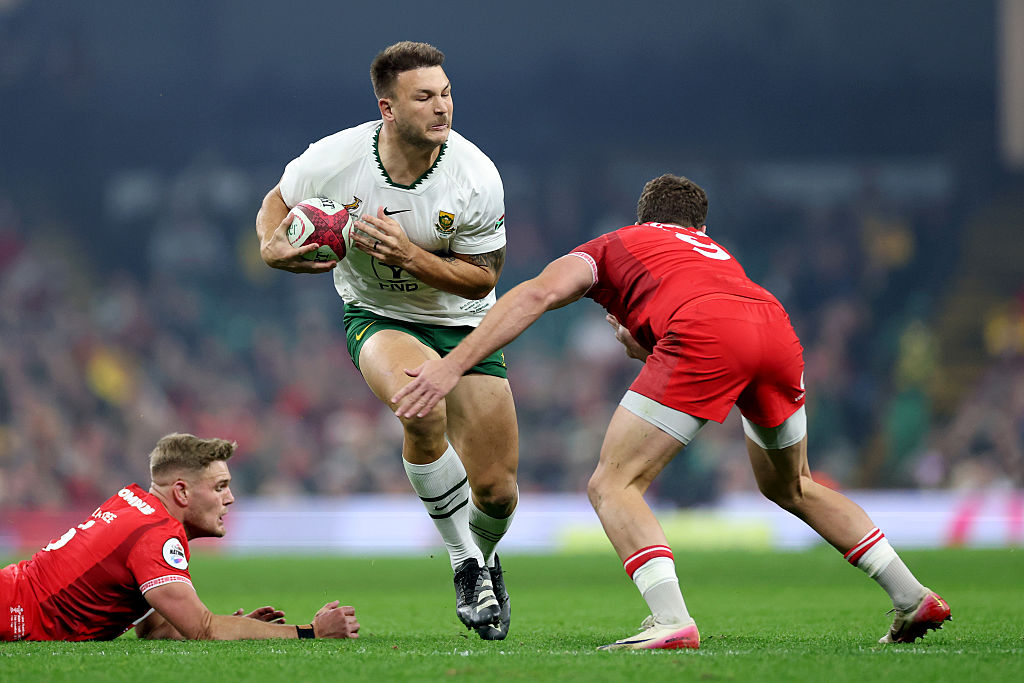
Andre ‘The Giant’ Esterhuizen led the charge at the Principality as the Springboks took the sword to the throat of the Welsh Dragons, Mark Keohane.
Esterhuizen was the official Player of the Match. He was also my standout Boks individual in a performance where numbers one to 23 were outstanding, as individuals, but their potency was the collective as a 15, regardless of who was wearing what number.
Boks coach Rassie Erasmus, post the match, was delighted at the control and clinical nature of the performance, and pleased with the manner in which his players never veered from the disciplined game plan approach of playing the game in the Welsh half, suffocating the Welsh set piece, and also the game management of his halfbacks Morne van den Berg and Sacha Feinberg-Mngomezulu, with the latter scoring two tries and kicking nine conversions from 11 attempts for 28 points.
Damian Willemse, at fullback, was equally impressive in how he owned the space at the back.
Springboks captain Siya Kolisi, at the forefront of everything that was strong about the Boks, spoke afterwards of playing the game in the right areas and not been seduced by the team make-up of Wales, who were missing 13 players, or early scoreboard advantage.
Kolisi said they have enormous respect for Welsh rugby and for the fight within the players. The Boks had also been impressed with the first 60 minutes from Wales against the All Blacks, when they trailed 24-21.
Kolisi said the Welsh had shown their pedigree when the game gets loose and opens up and the Boks had to be at their most disciplined not to want to turn the Test into a Barbarians-style match.
Erasmus and Kolisi, as always, kept their focus on the collective, the appreciation of a squad that goes beyond 45 players and the role of each player and management member within the squad.
The Boks coach applauded Kolisi and his players for the powerful finish to a season that totalled 14 Tests and a non-international against the Barbarians in Cape Town to start the season.
Erasmus also said the players and coaches had learned the lesson of the Castle Rugby Championship opener against Australia at Ellis Park, when the Boks led 22-0 playing tempo rugby, only to lose their legs and lose the match 38-22.
There had to be greater balance in how they wanted to play, said Erasmus, but that did not mean sacrificing anything when it was one to attack.
The Boks biggest weapon is their set piece, particularly the scrum, but Erasmus said that weapon could easily be defused by the Boks themselves, if they played too much rugby in the wrong areas and fatigued their powerhouse pack.
‘We learned from that Australian Test,’ he said. ‘That pleased me.’
Kolisi was equally pleased with the manner in which his players fought for turnover ball, regardless of field position or the scoreline, and to see the Boks throw themselves at the breakdown and Welsh ankles and legs to keep the hosts out in the final minute was the measure of the character of these Boks.
The Boks were 73-0 ahead in the 79th minute when they fought to deny Wales a try and won a penalty turnover.
CELEBRATING COBUS REINACH & HIS 50th TEST
BOKS v WALES TEST MATCH REACTION
Scorers
Springboks
Tries: Gerhard Steenekamp, Ethan Hooker, Jasper Wiese, Morne van den Berg, Wilco Louw, Sacha Feinberg-Mngomezulu (2), Canan Moodie, Andre Esterhuizen, Ruan Nortje and Eben Etzebeth.
Convs: Feinberg-Mngomezulu (9)
BACKING THE BOKS WITH AFRICA PICKS
WALES – 15 Blair Murray, 14 Ellis Mee, 13 Joe Roberts, 12 Joe Hawkins, 11 Rio Dyer, 10 Dan Edwards, 9 Kieran Hardy, 8 Aaron Wainwright, 7 Alex Mann, 6 Taine Plumtree, 5 Rhys Davies, 4 Ben Carter, 3 Keiron Assiratti, 2 Dewi Lake, 1 Gareth Thomas.
Bench: 16 Brodie Coghlan, 17 Danny Southworth, 18 Chris Coleman, 19 James Ratti, 20 Morgan Morse, 21 Reuben Morgan-Williams, 22 Callum Sheedy, 23 Ben Thomas.
SPRINGBOKS – 15 Damian Willemse, 14 Ethan Hooker, 13 Damian de Allende, 12 Andre Esterhuizen, 11 Canan Moodie, 10 Sacha Feinberg-Mngomezulu, 9 Morne van den Berg, 8 Jasper Wiese, 7 Franco Mostert, 6 Siya Kolisi (c), 5 Ruan Nortje, 4 Jean Kleyn, 3 Wilco Louw, 2 Johan Grobbelaar, 1 Gerhard Steenekamp.
Bench: 16 Bongi Mbonambi, 17 Zachary Porthen, 18 Asenathi Ntlabakanye, 19 Eben Etzebeth, 20 Marco van Staden, 21 Ben-Jason Dixon, 22 Kwagga Smith, 23 Cobus Reinach.
-
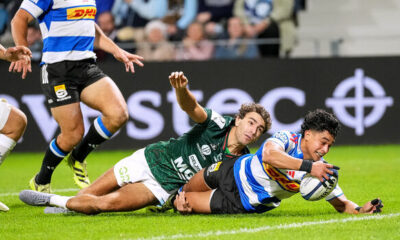
 KEO News Wire7 days ago
KEO News Wire7 days agoBath, Bordeaux and Stormers fire big shots in Investec Champions Cup
-
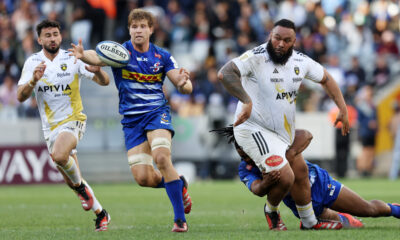
 KEO News Wire5 days ago
KEO News Wire5 days agoInvestec Champions Cup running red hot in Round 2
-
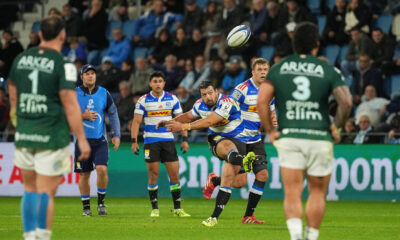
 KEO News Wire6 days ago
KEO News Wire6 days agoSouth African stars shine bright in Champions Cup opener
-
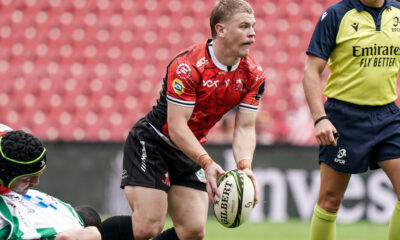
 KEO News Wire6 days ago
KEO News Wire6 days agoIt’s win or bust for Lions & Cheetahs in the EPCR
-
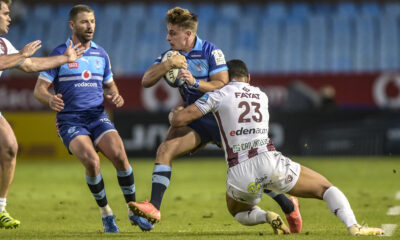
 KEO News Wire4 days ago
KEO News Wire4 days agoSA stars crack Investec Champions Cup Team of the Week
-

 KEO News Wire1 day ago
KEO News Wire1 day agoSA’s Super Saturday as Stormers & Sharks win big
-
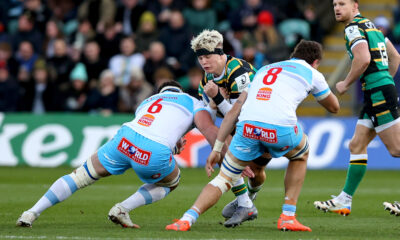
 KEO News Wire5 hours ago
KEO News Wire5 hours agoElrigh Louw brings light to another dark day for belittled Bulls
-

 KEO News Wire3 hours ago
KEO News Wire3 hours agoIn-form Springboks trio star in the Investec Champions Cup

gate io türkiye
8th May 2023 at 3:57 am
Your article made me suddenly realize that I am writing a thesis on gate.io. After reading your article, I have a different way of thinking, thank you. However, I still have some doubts, can you help me? Thanks.
open a binance account
11th September 2024 at 4:43 am
Your point of view caught my eye and was very interesting. Thanks. I have a question for you. https://accounts.binance.com/sk/register?ref=OMM3XK51
🧎♀️🍆 Dating for sex. Go - yandex.com/poll/LZW8GPQdJg3xe5C7gt95bD?hs=40fdcfe6c486eab452400a0ef738da8b& Message № 3668 🧎♀️🍆
5th December 2025 at 9:27 pm
0rrr16